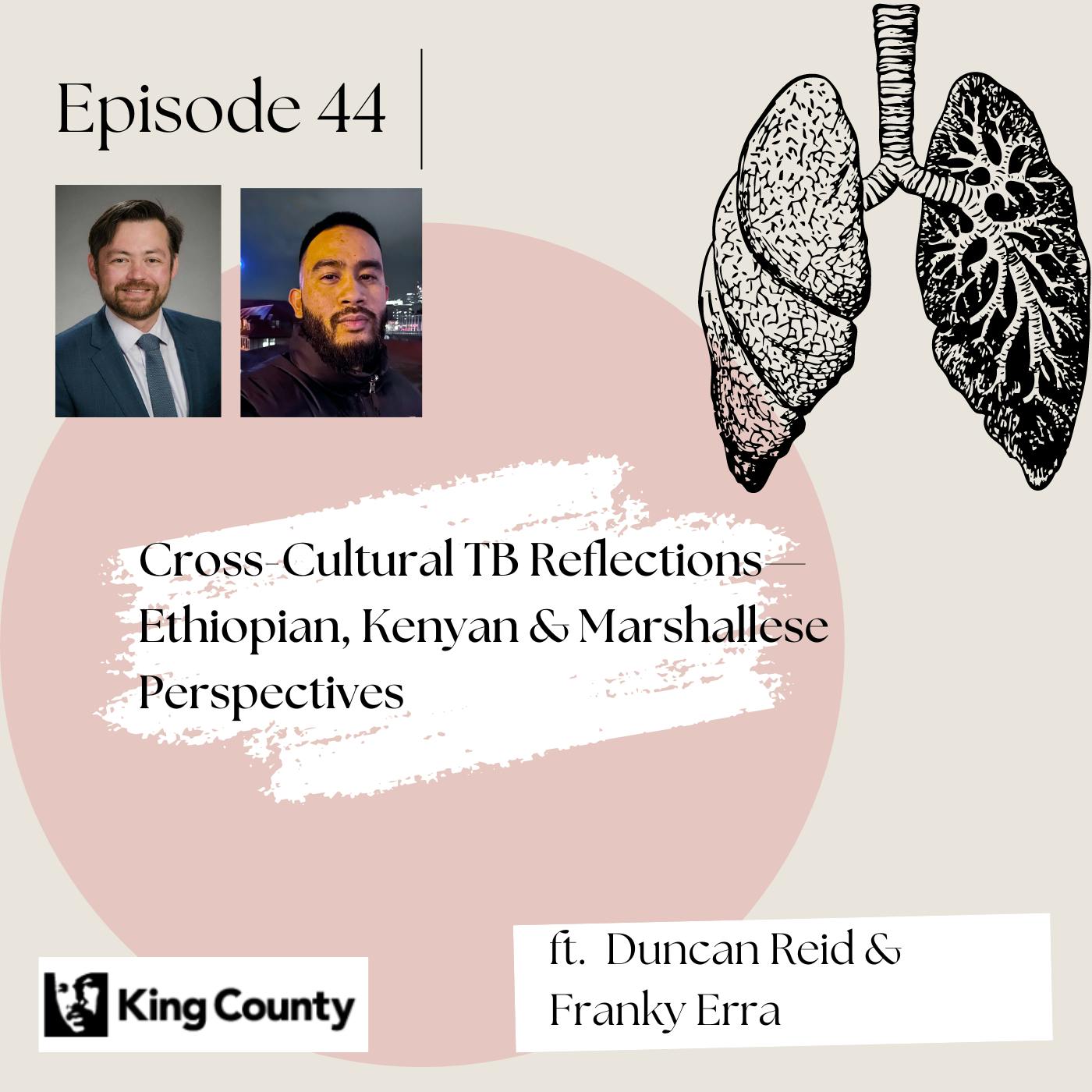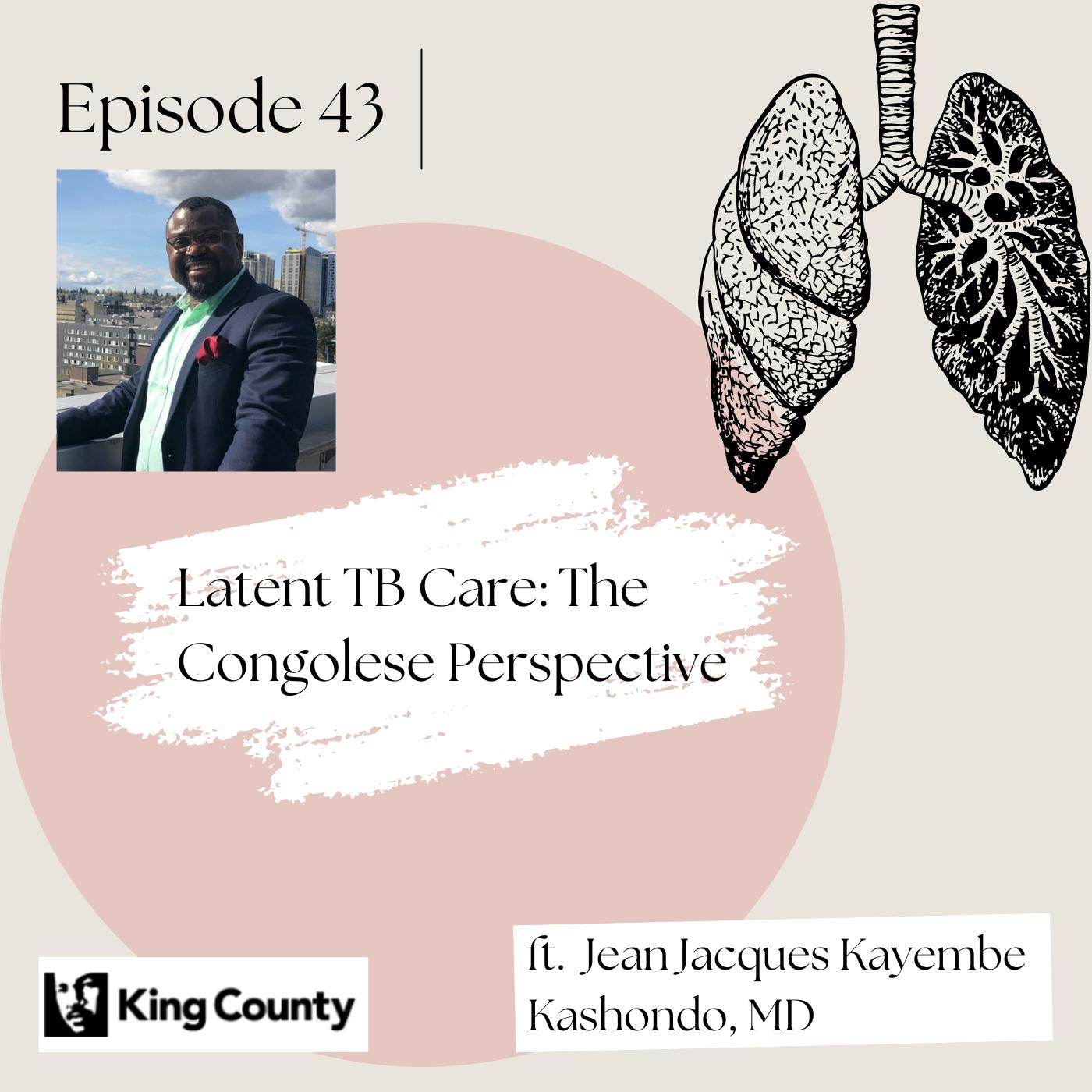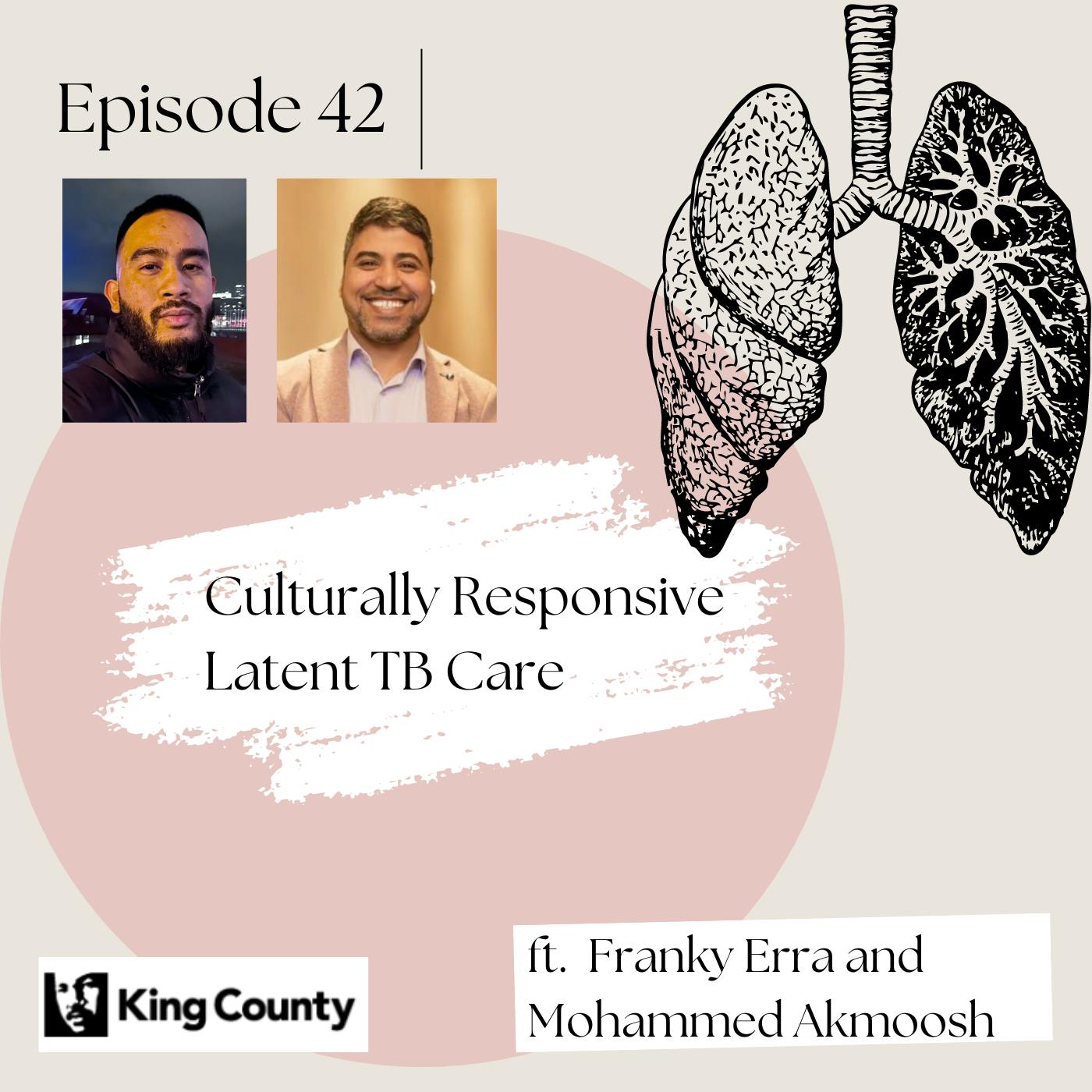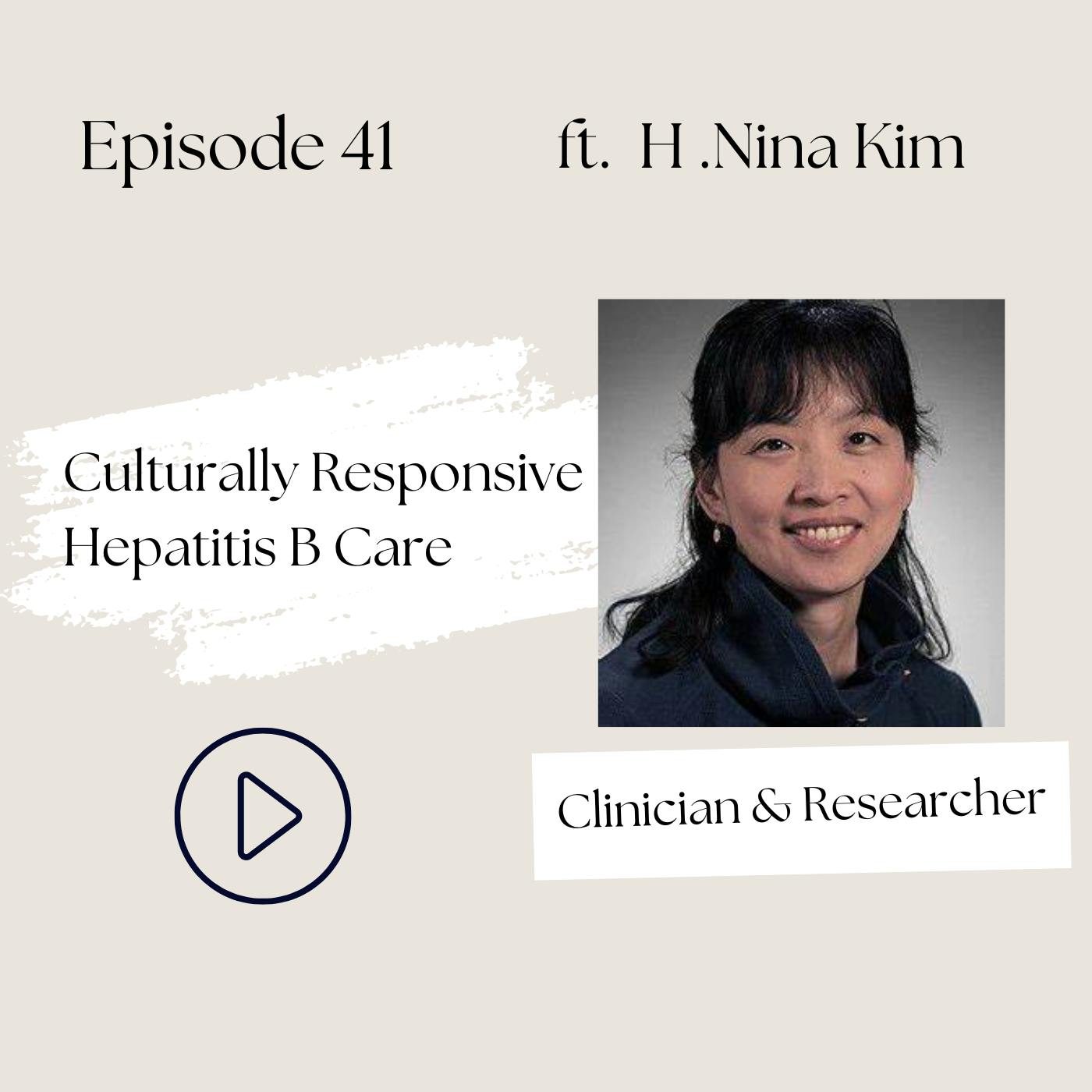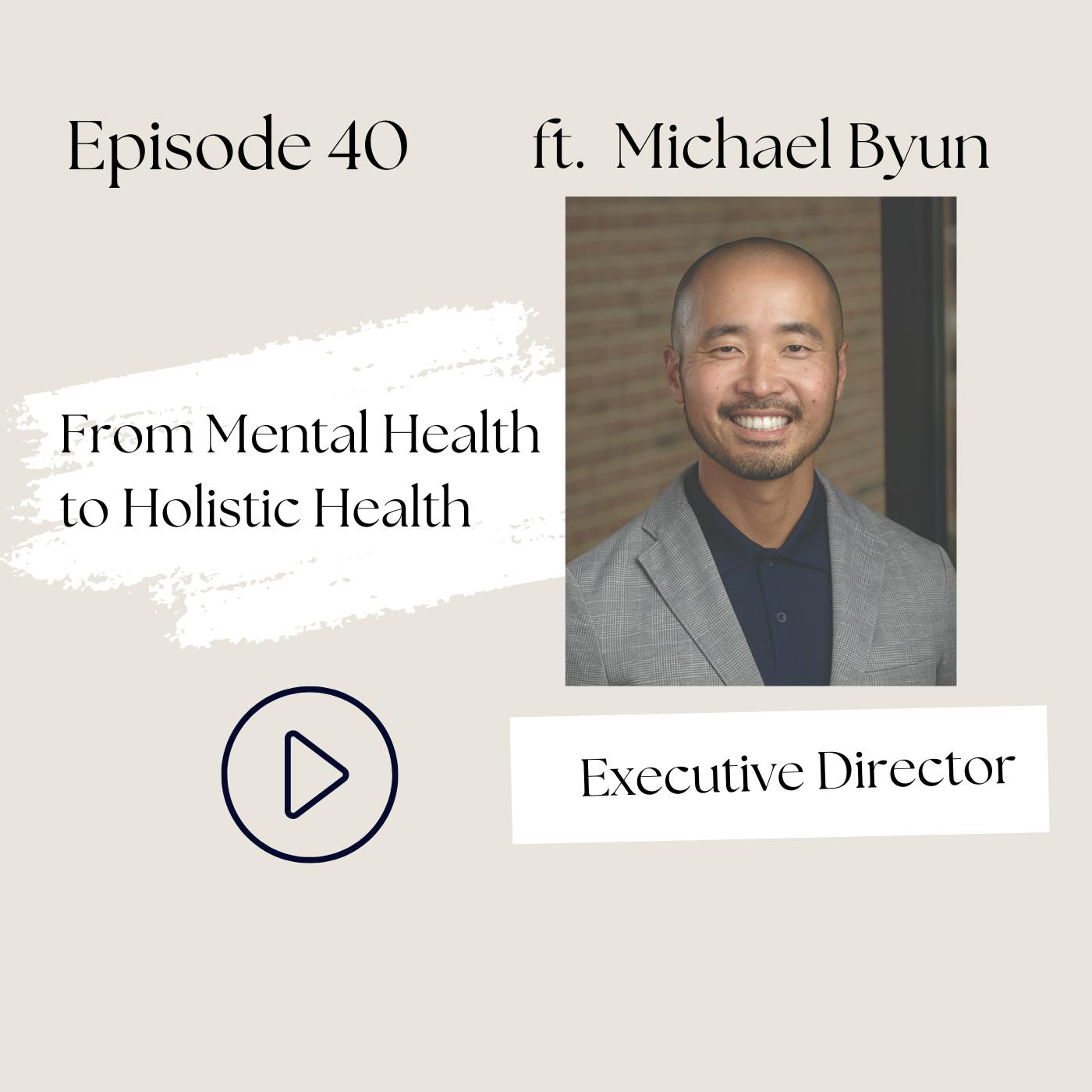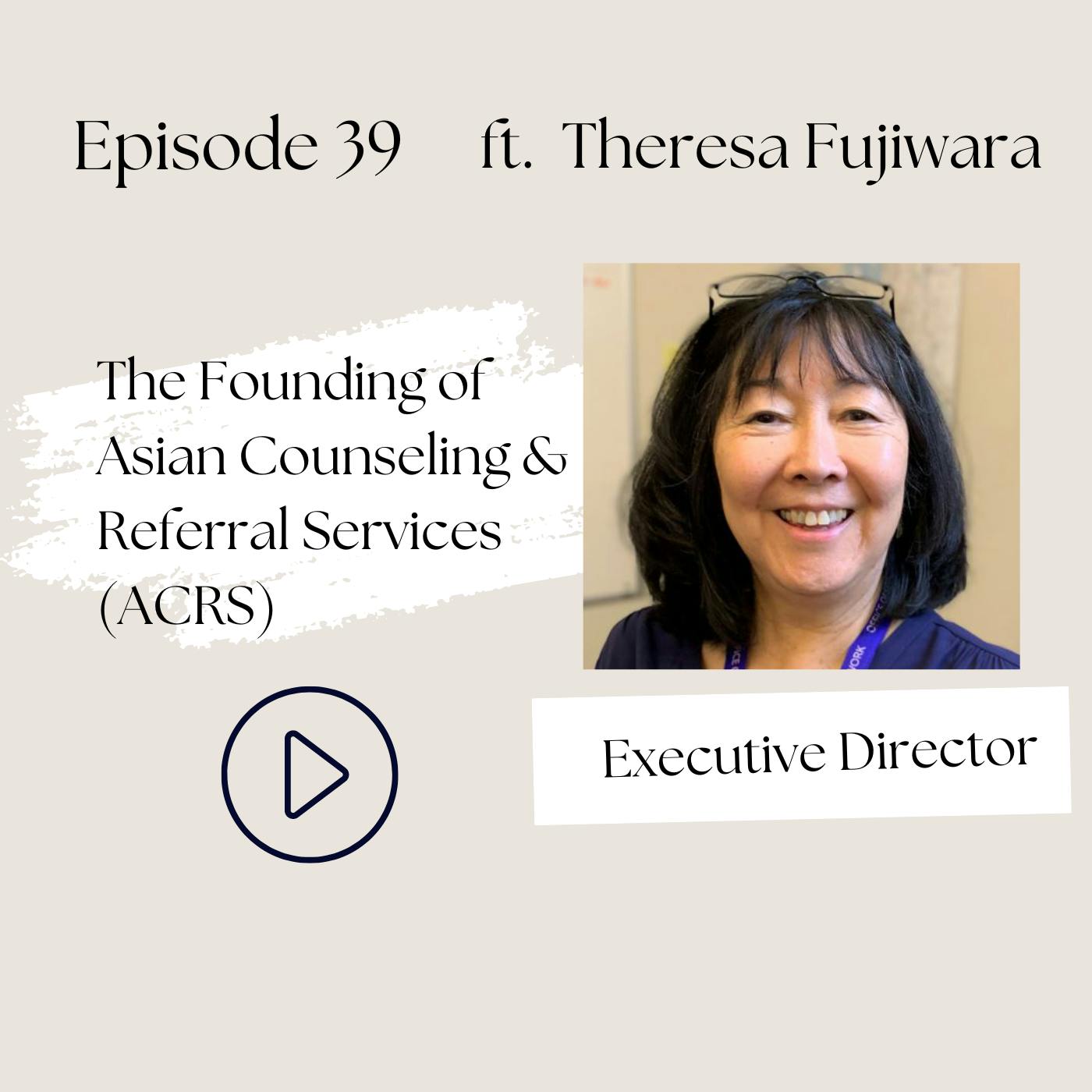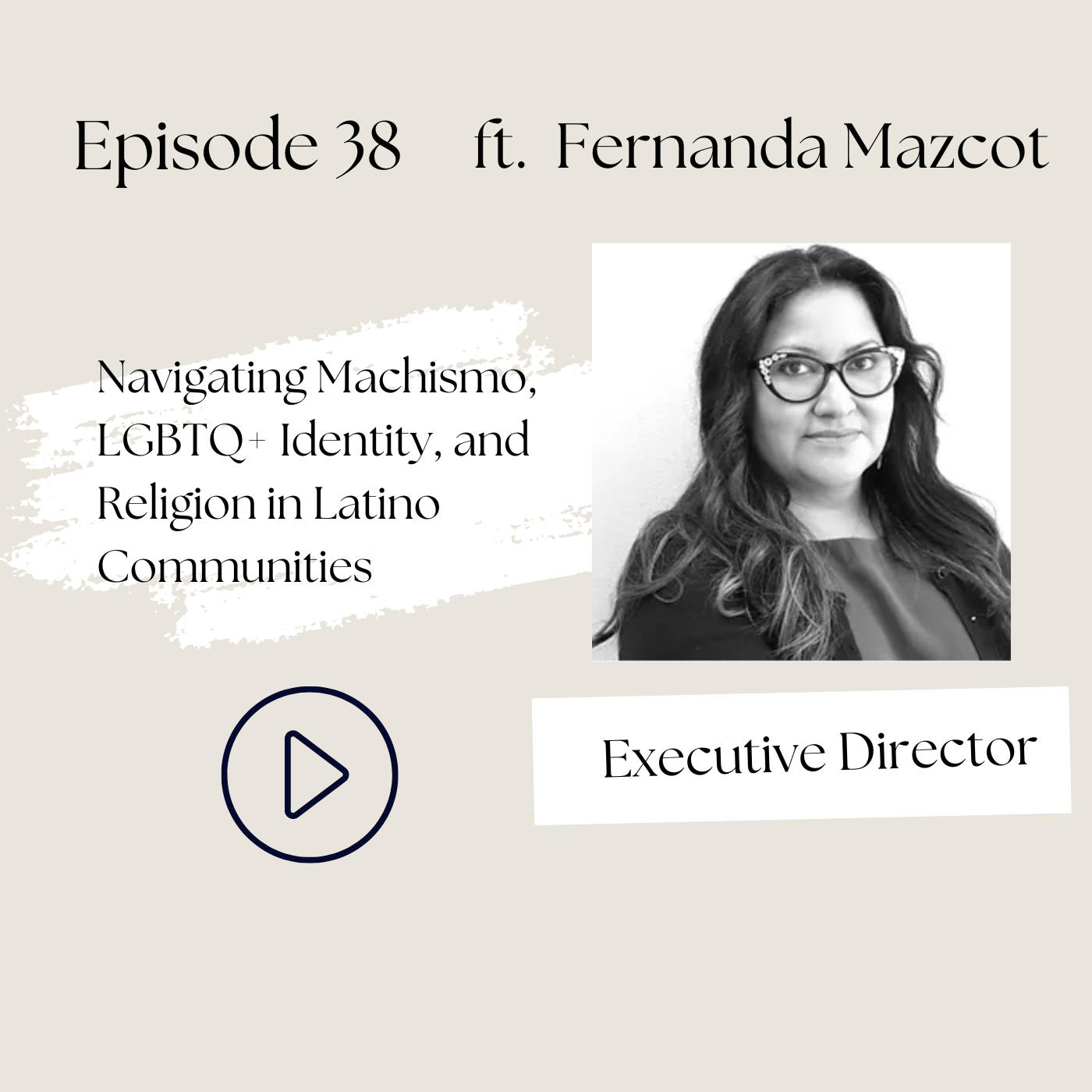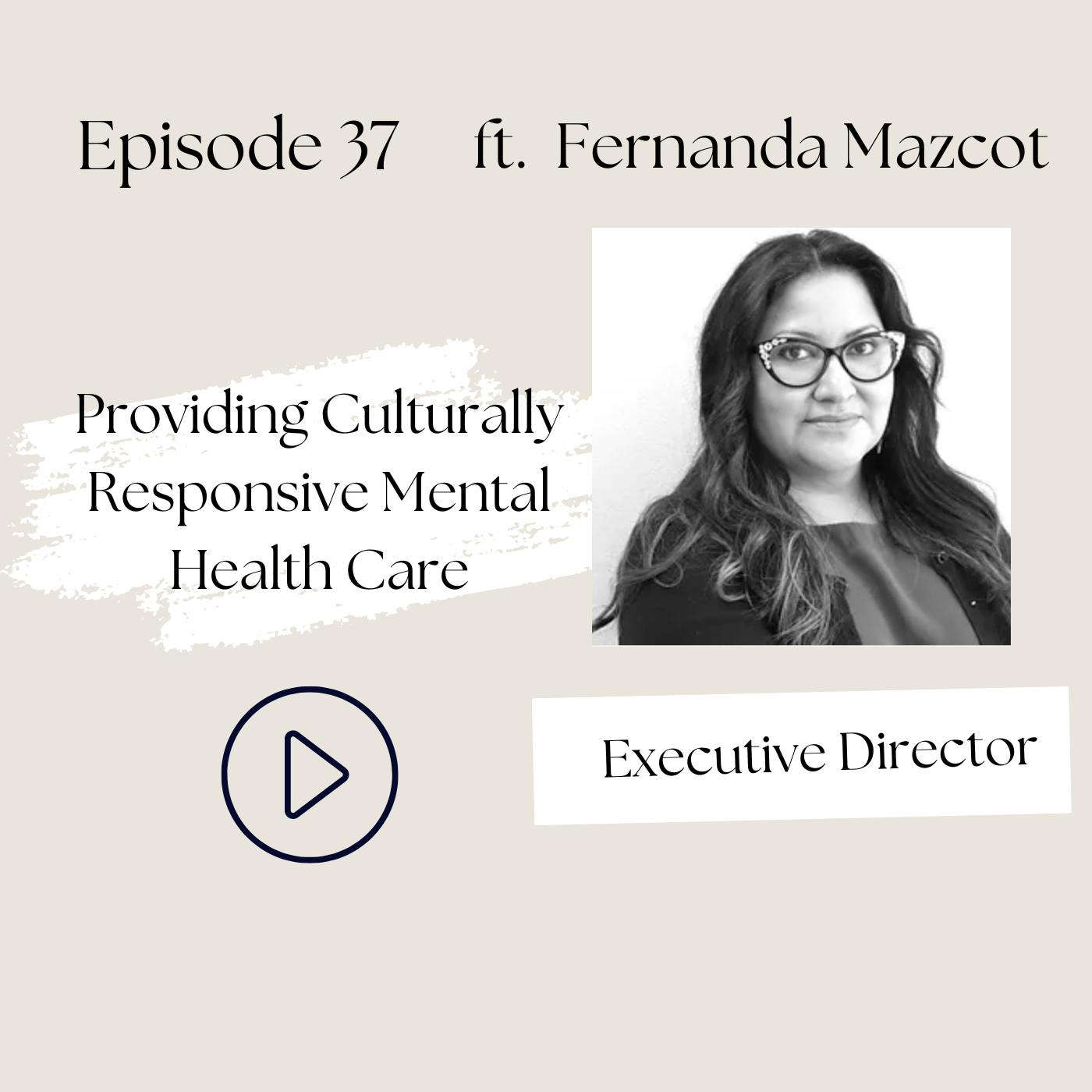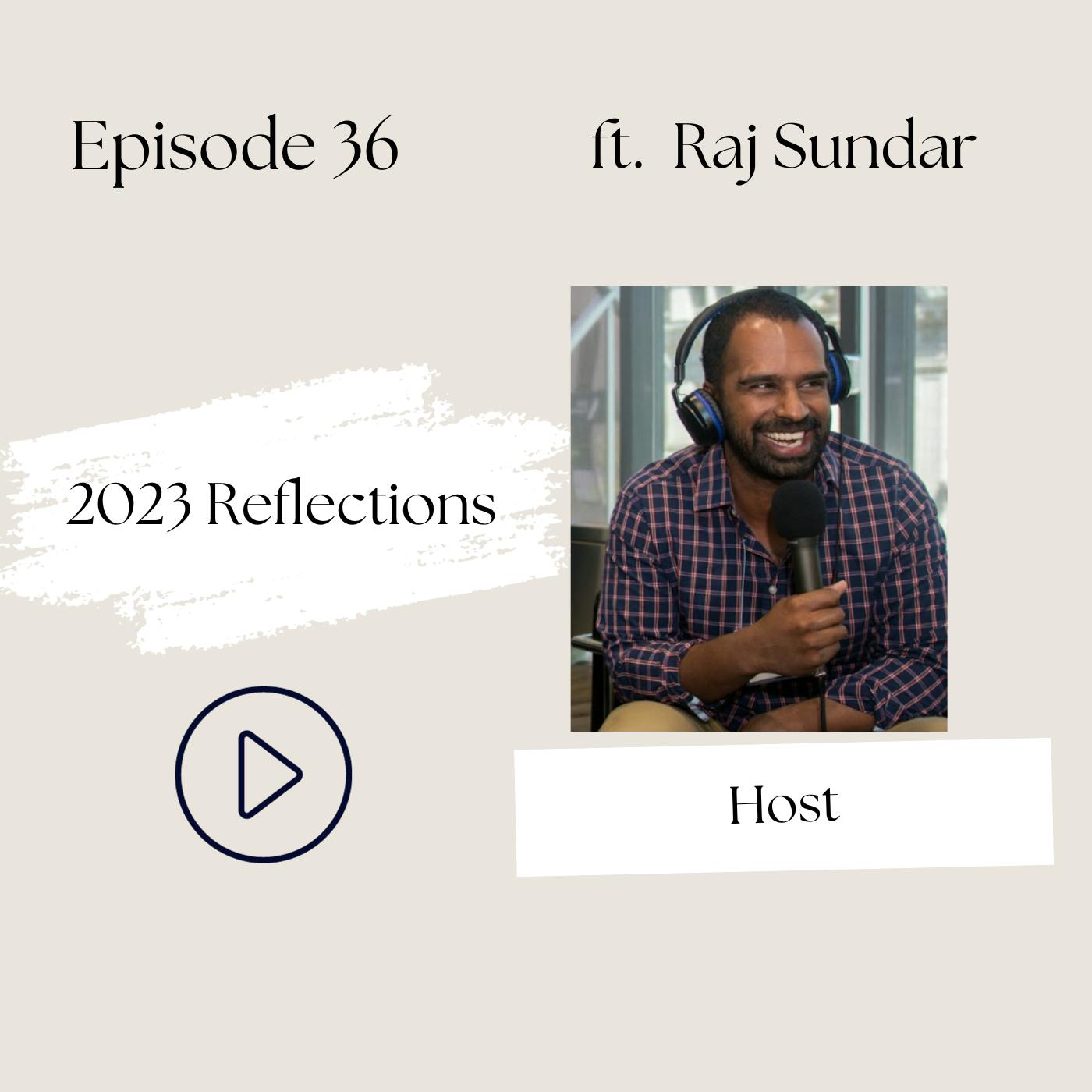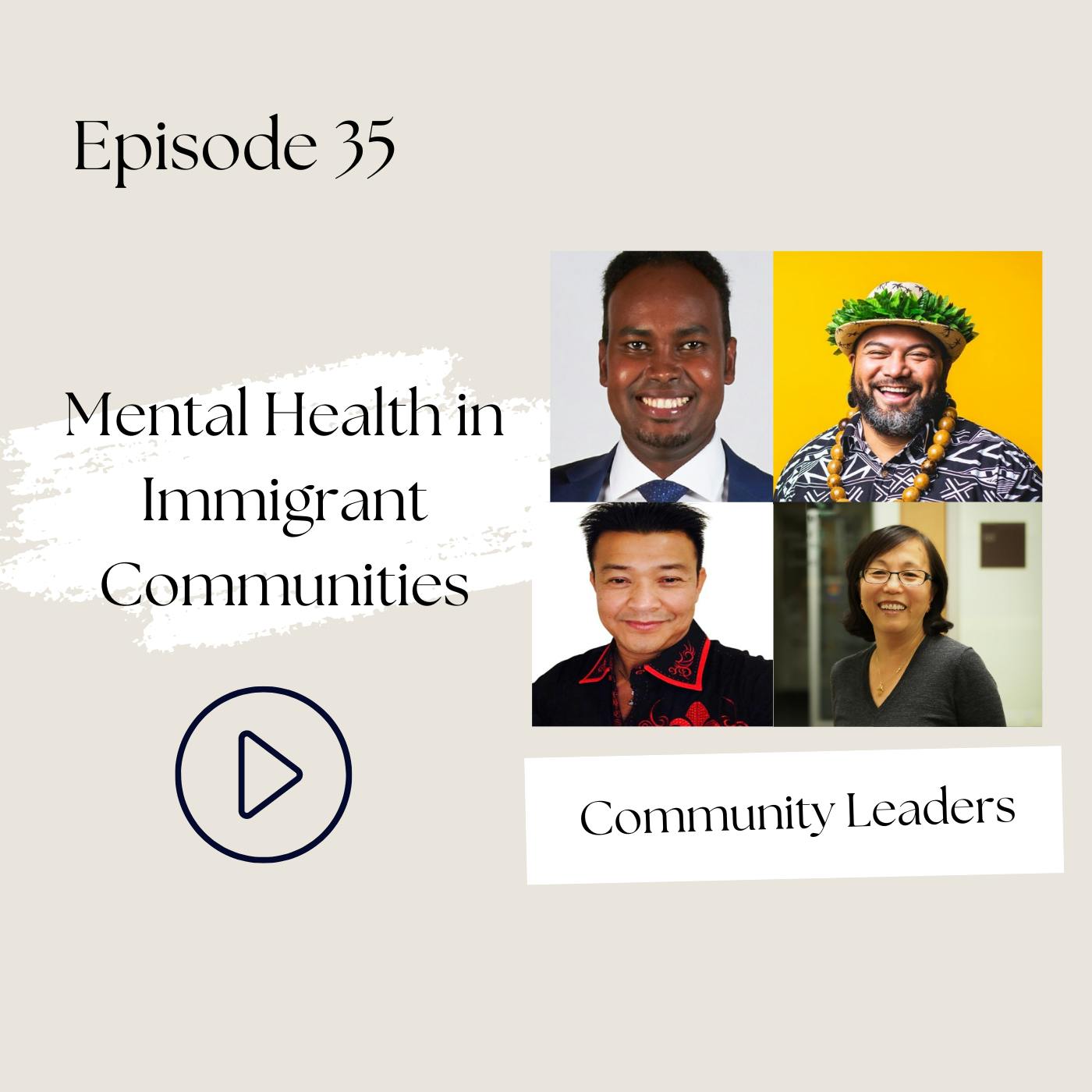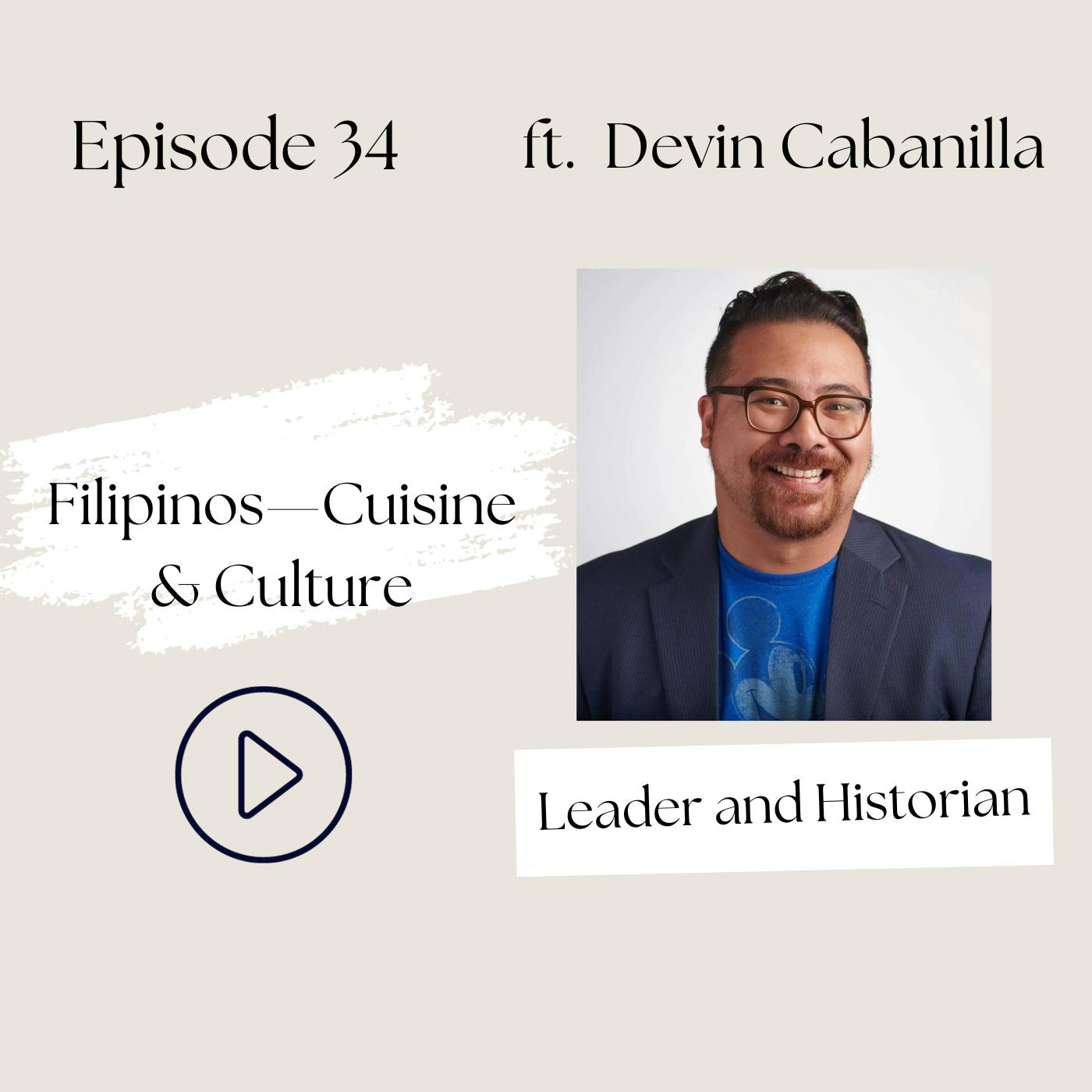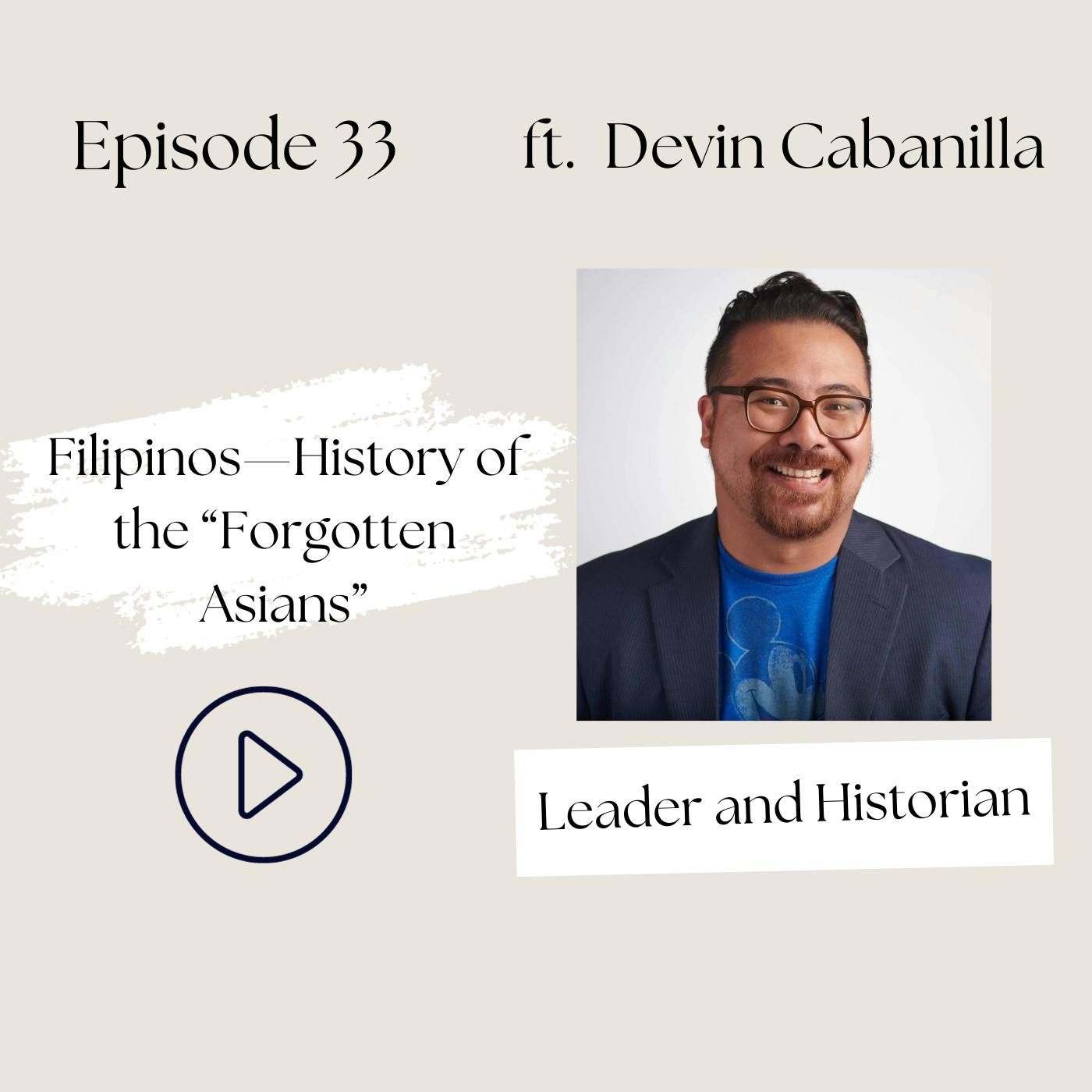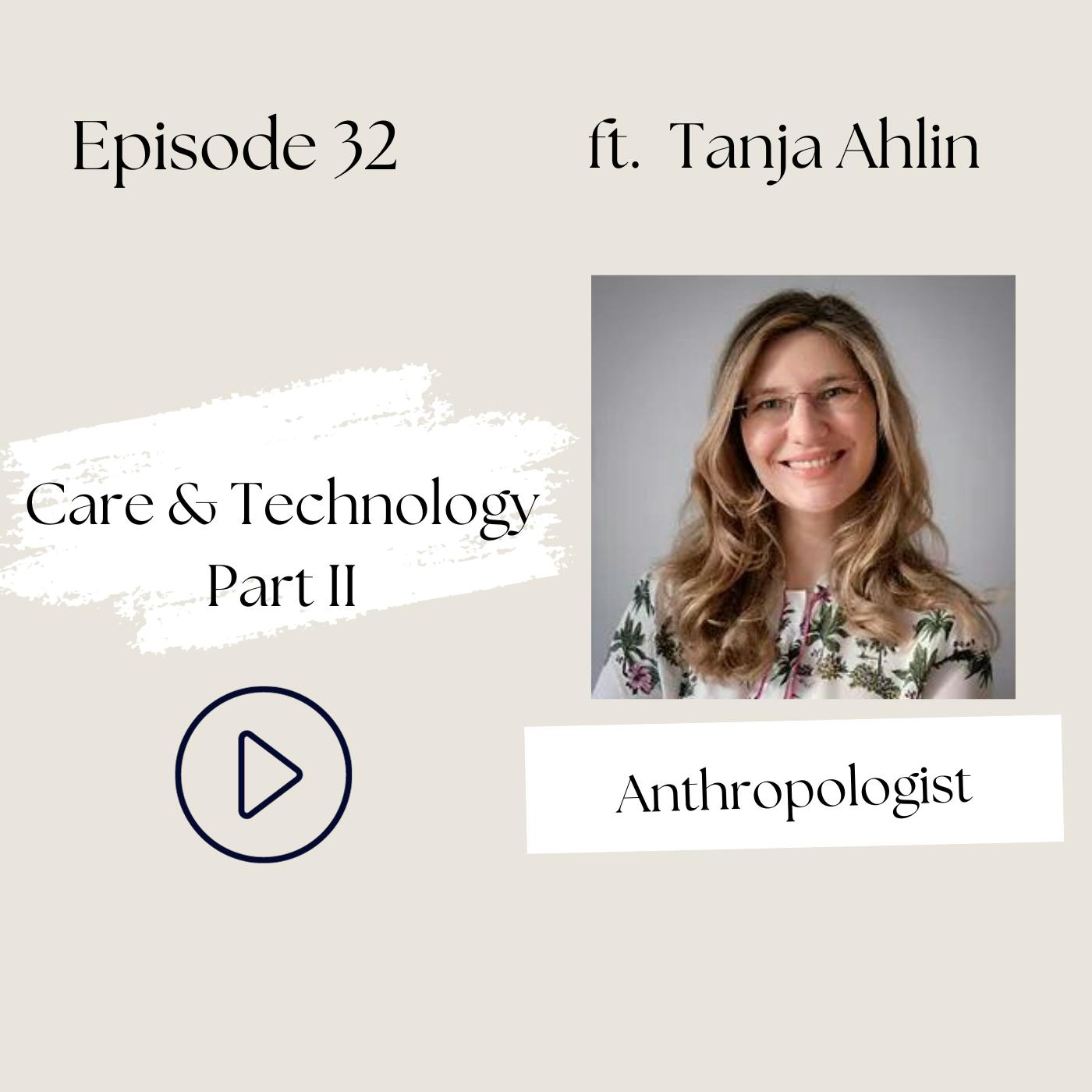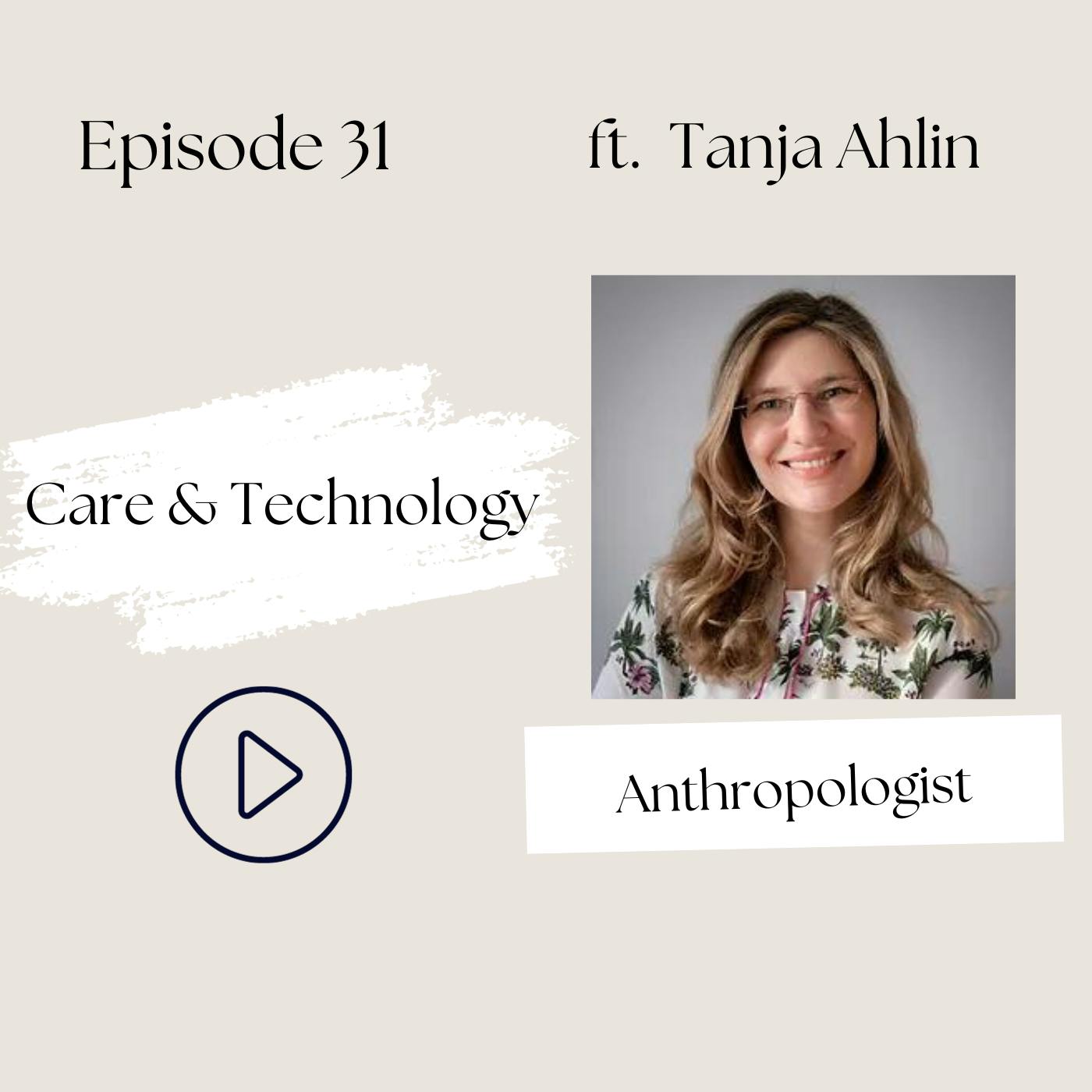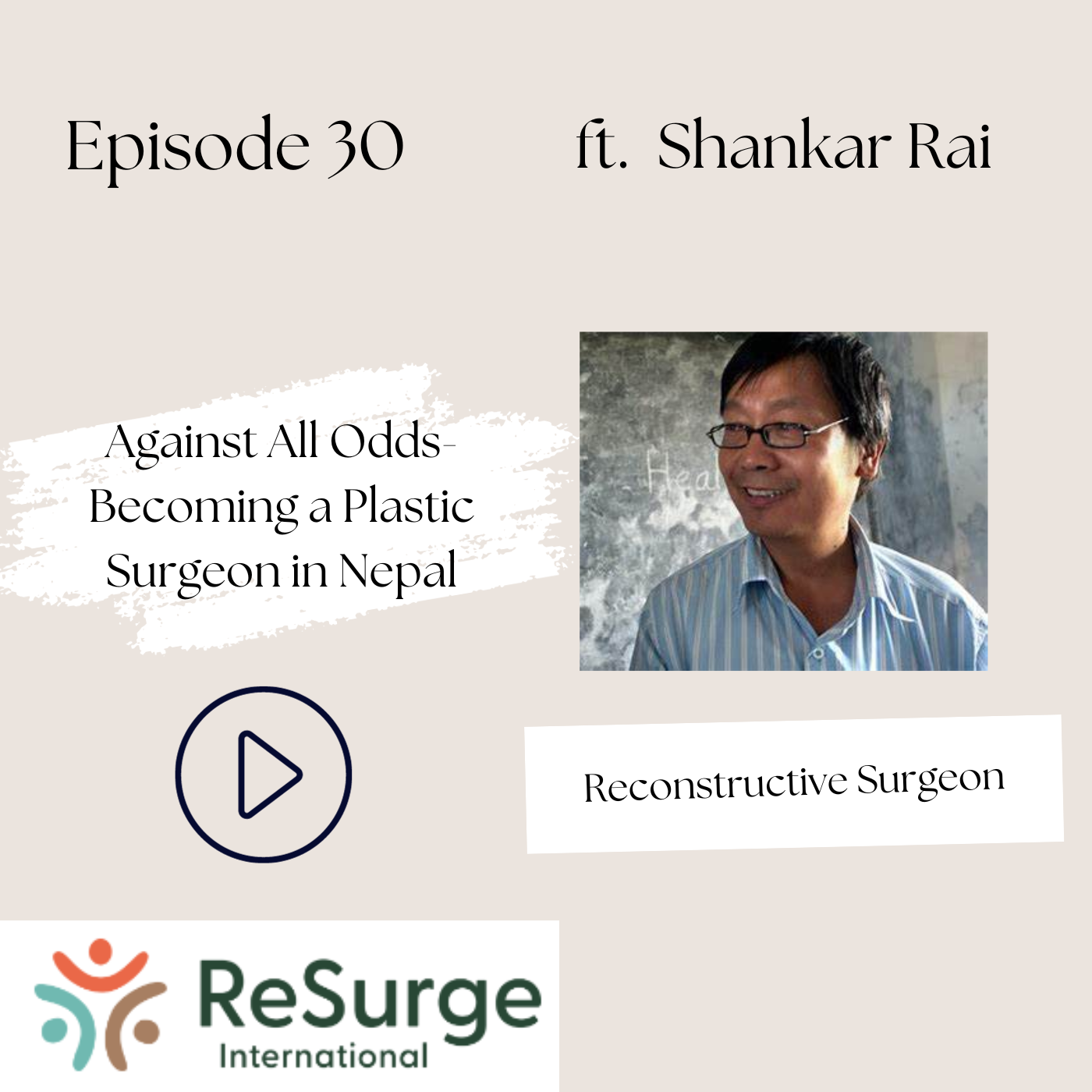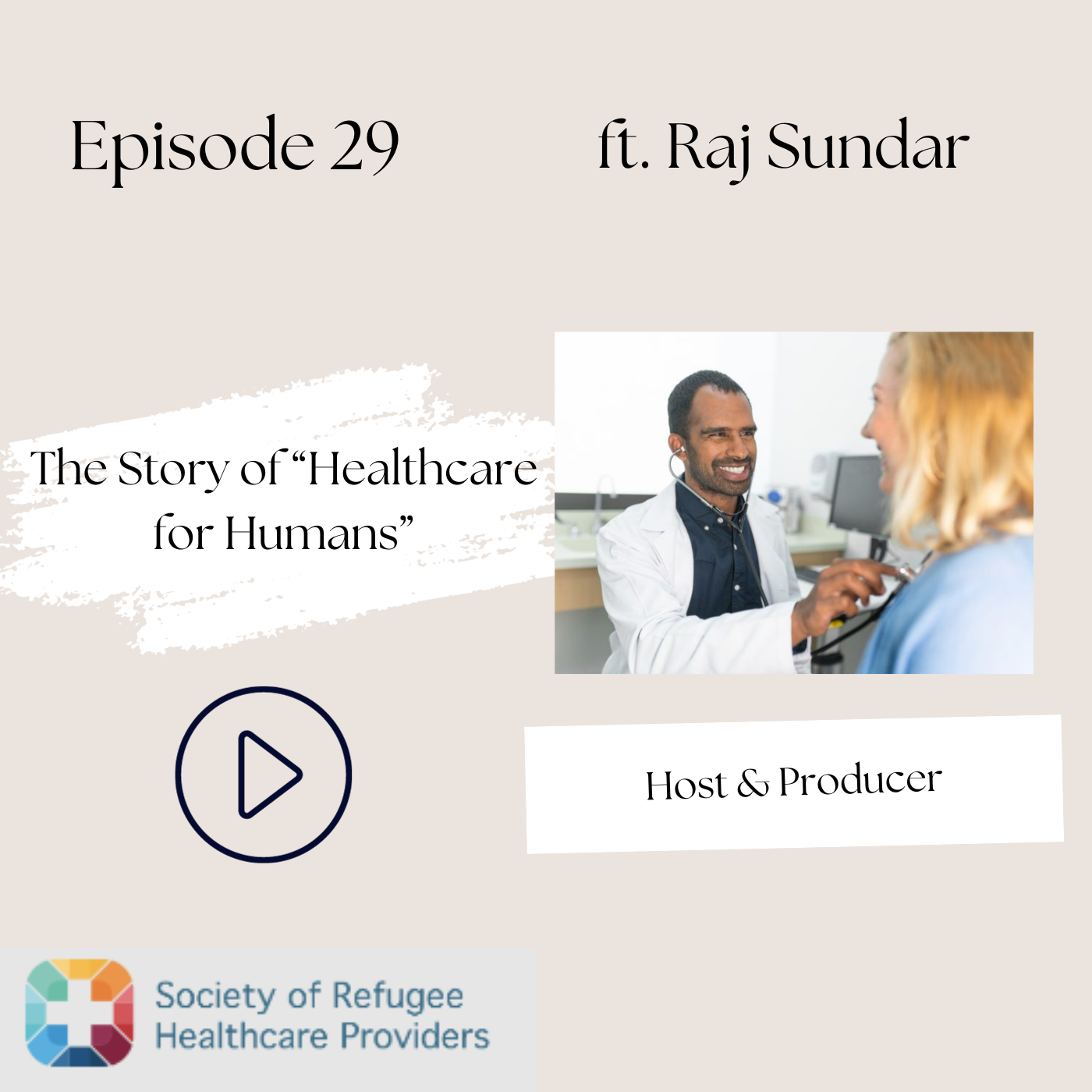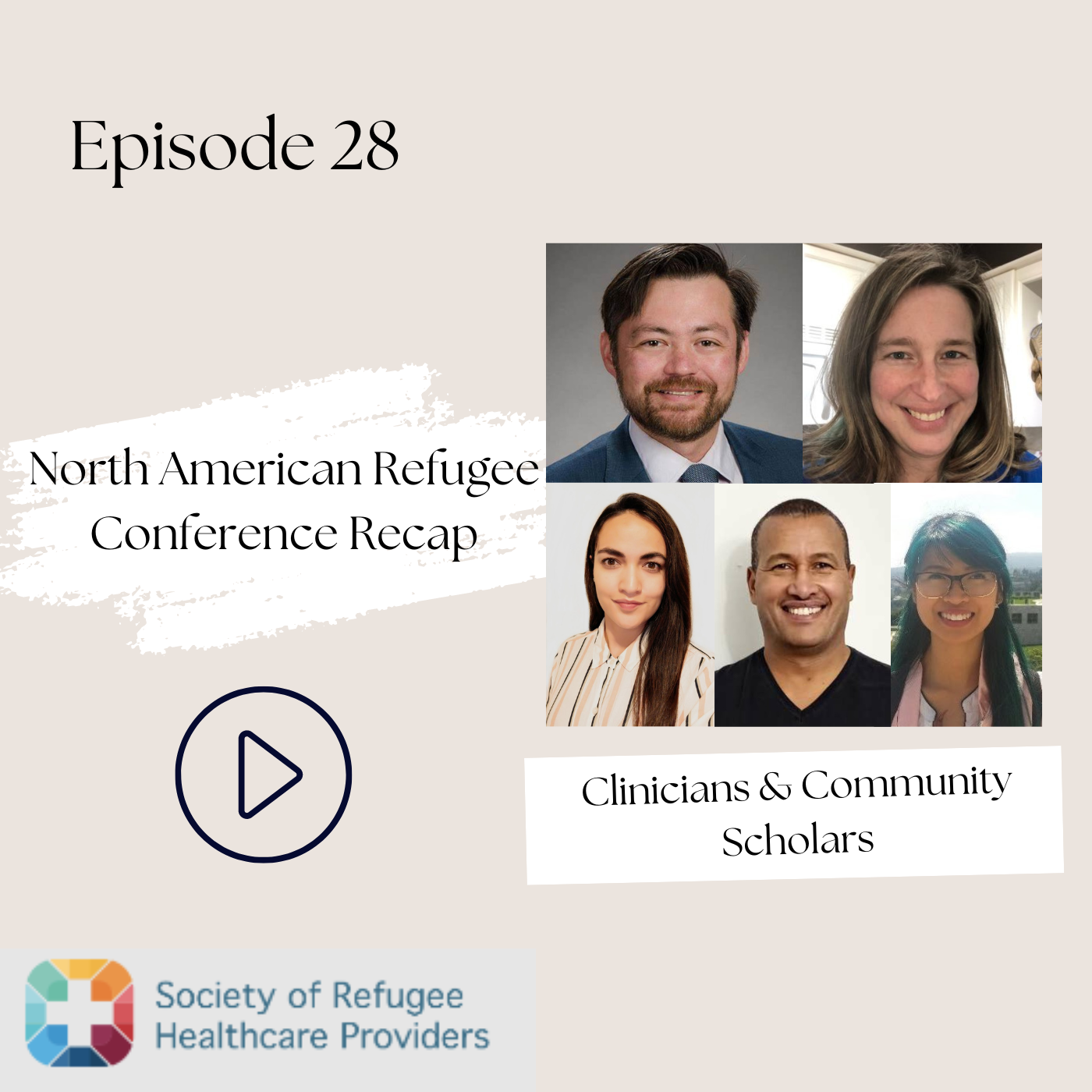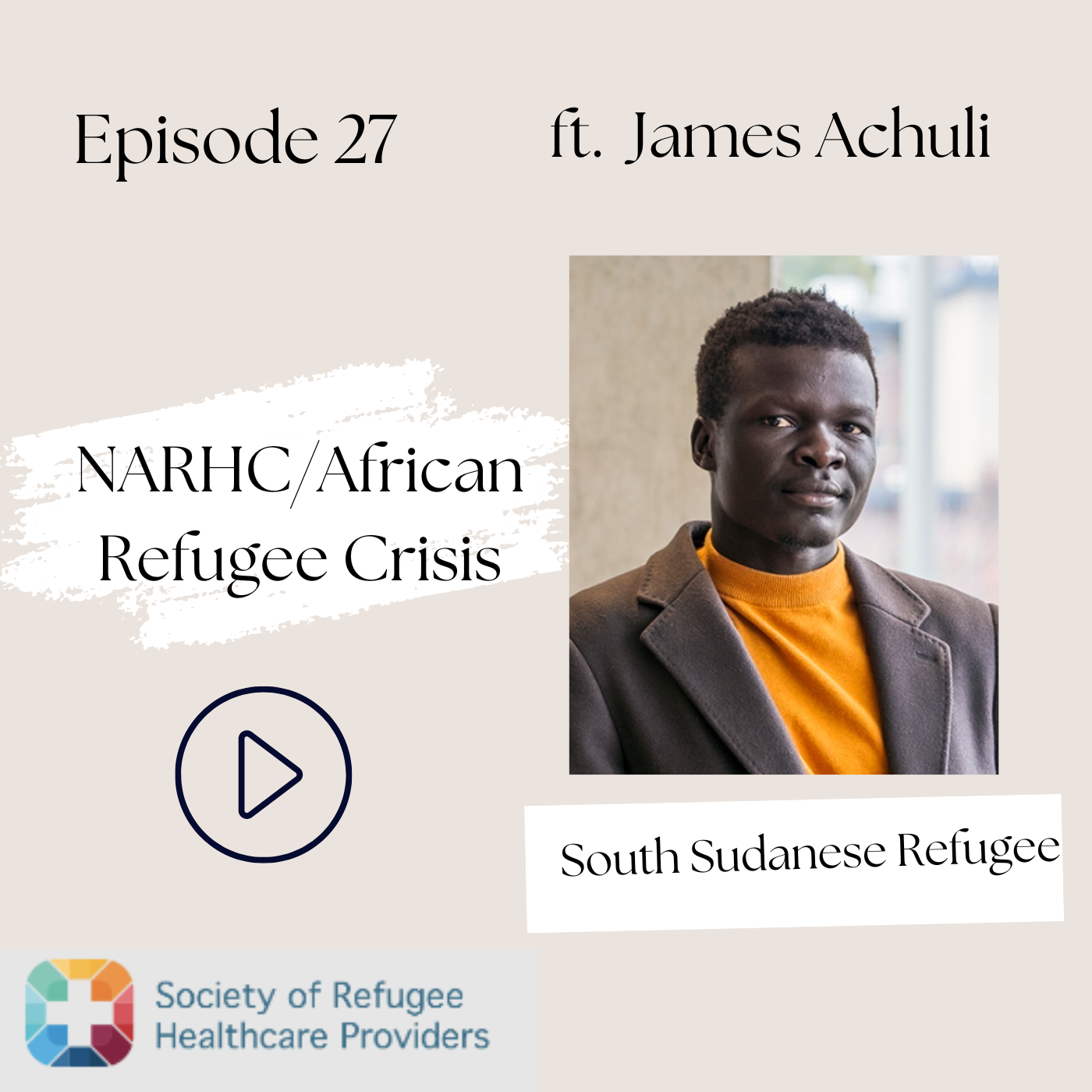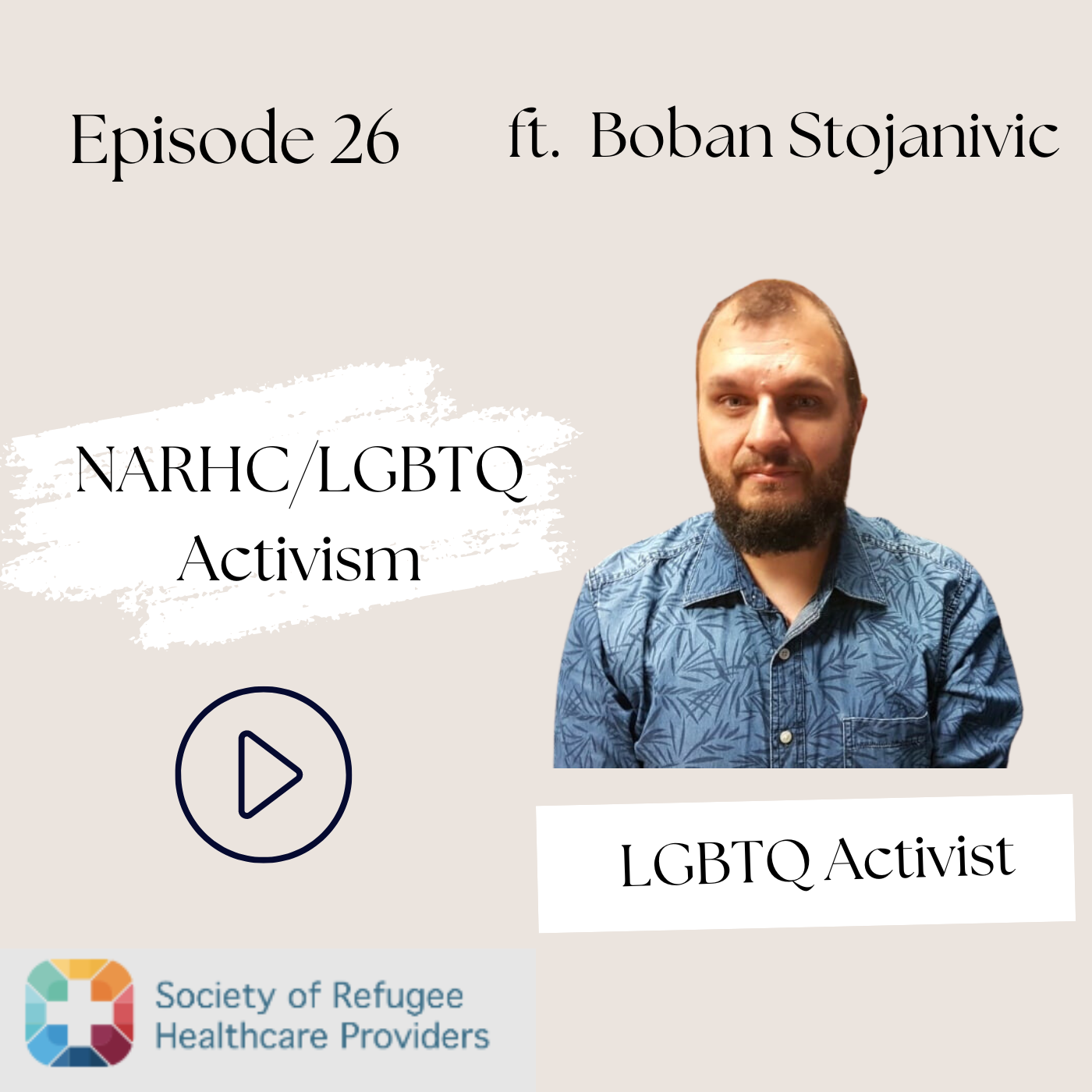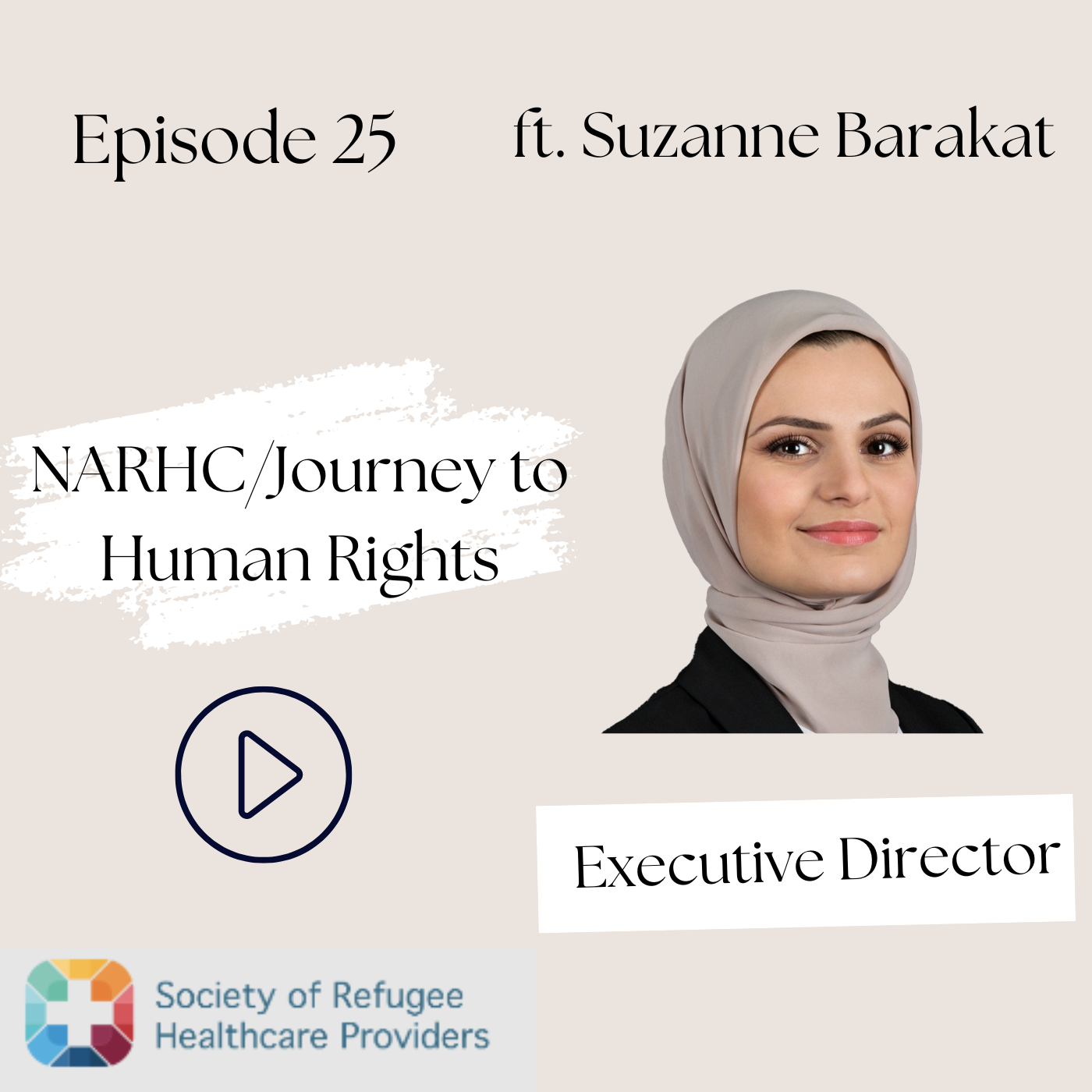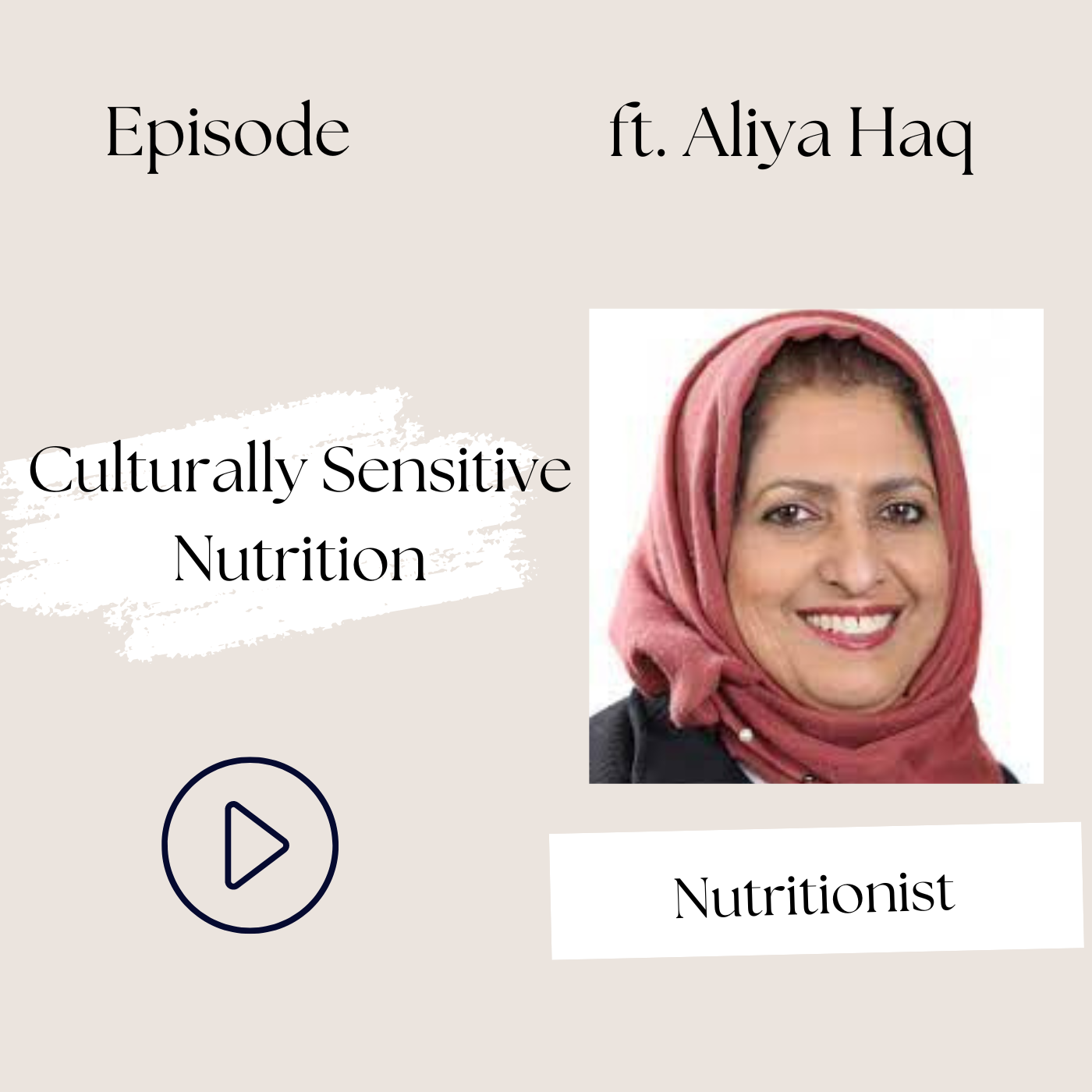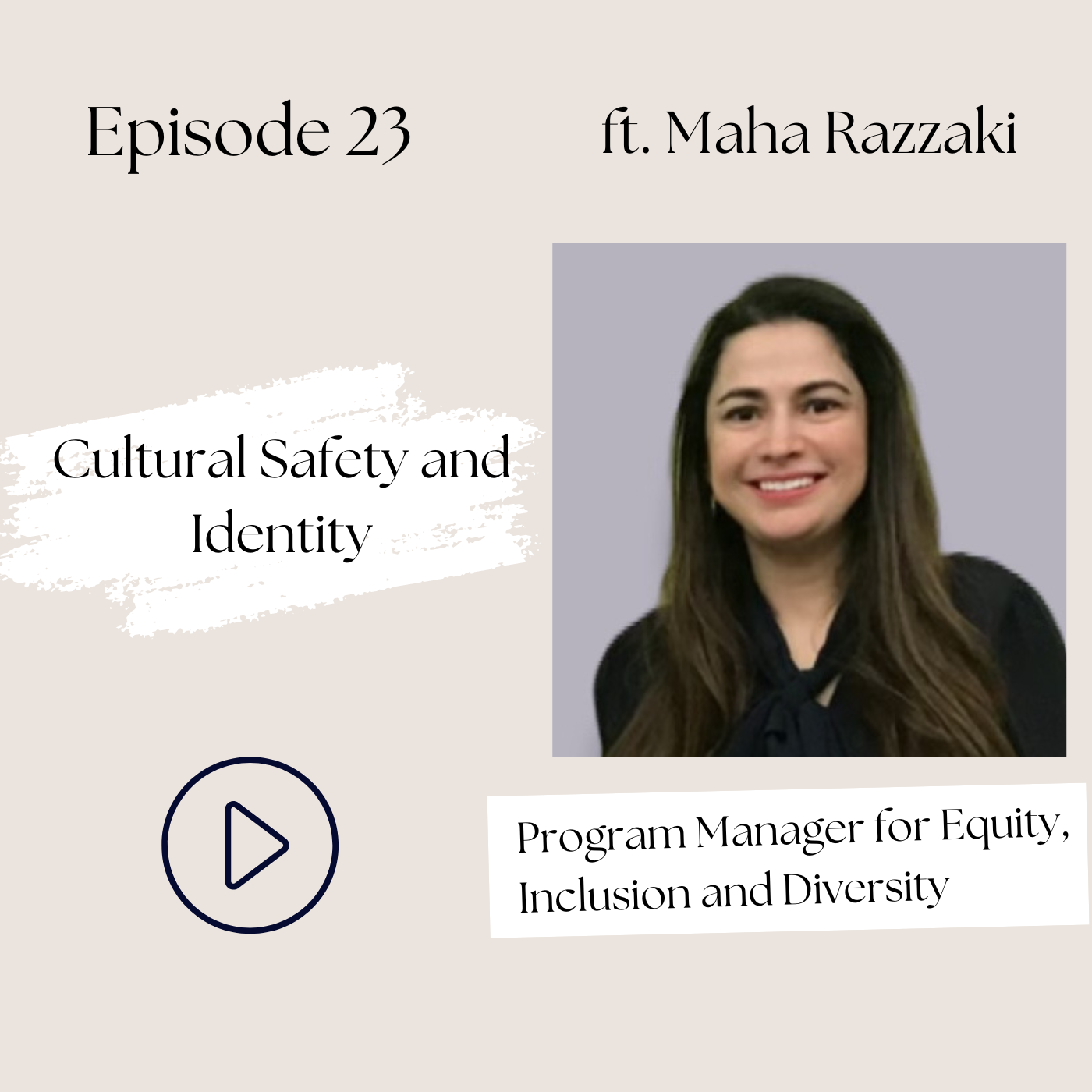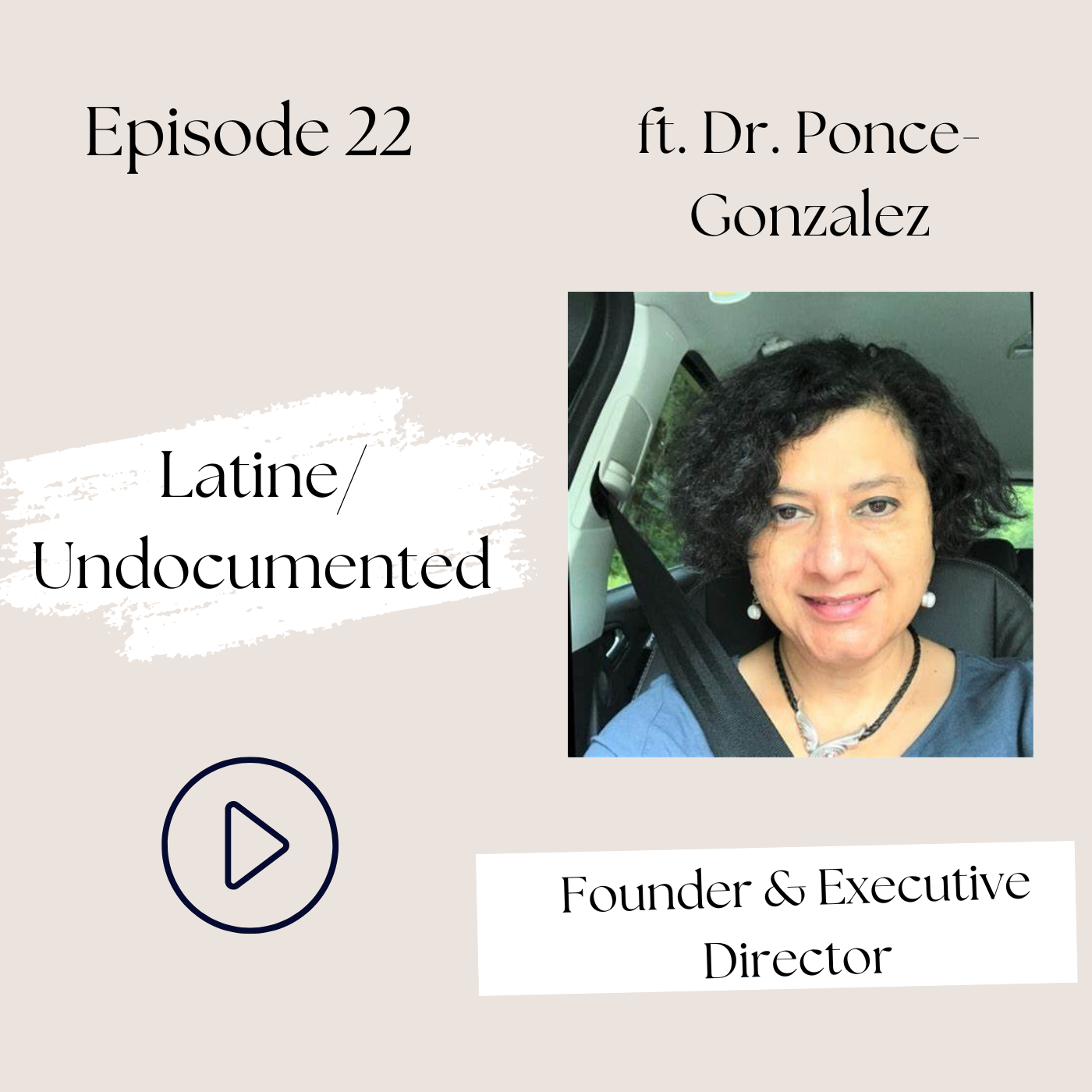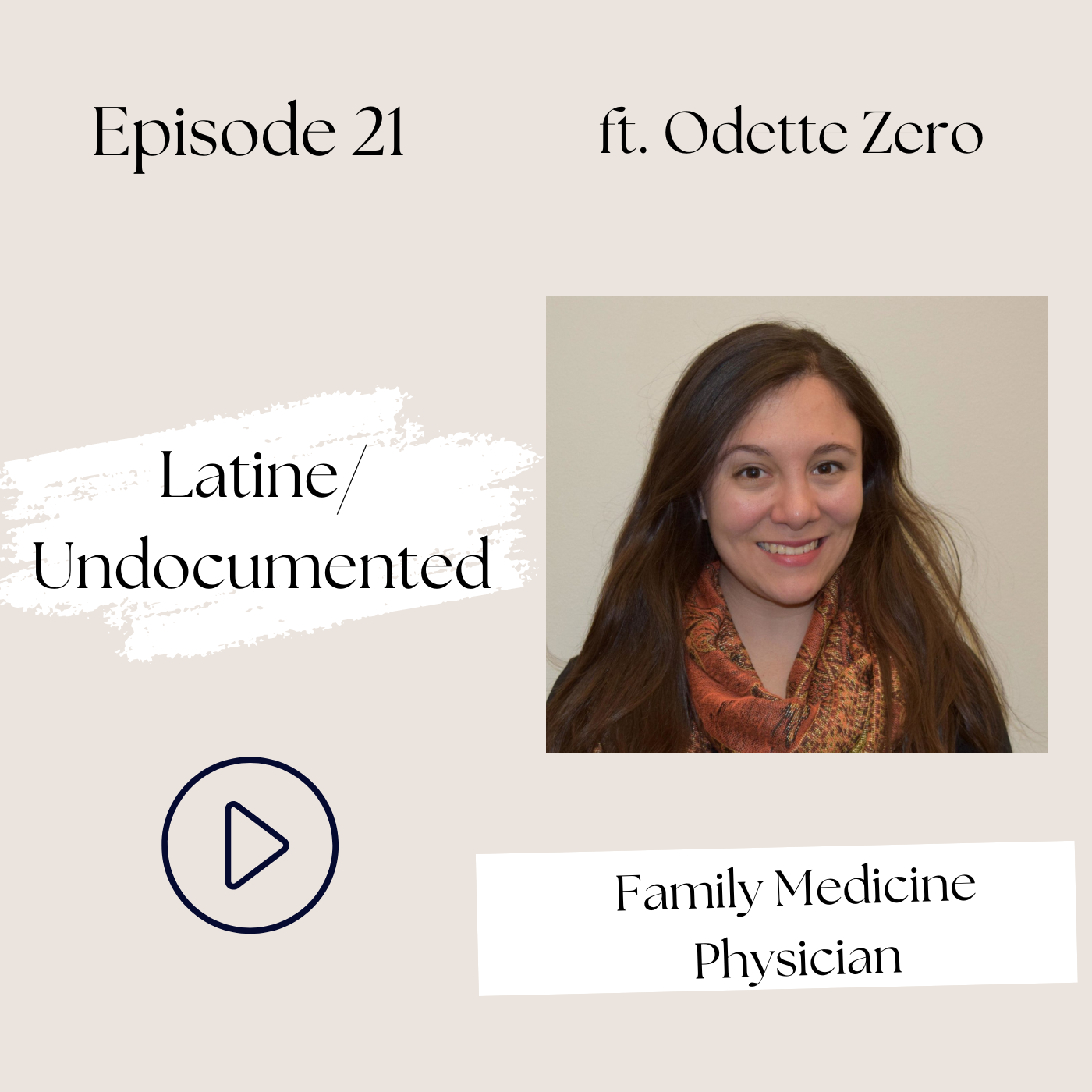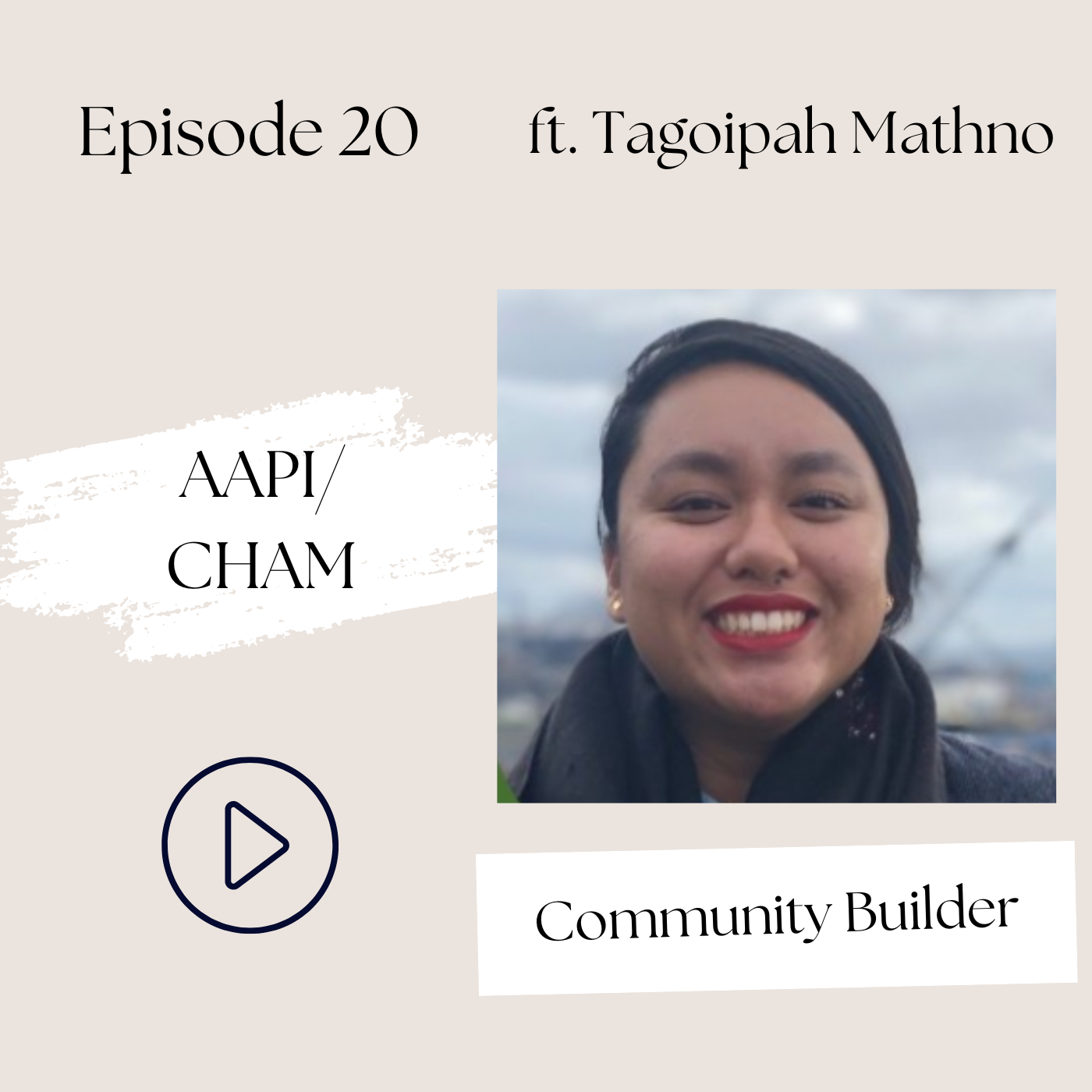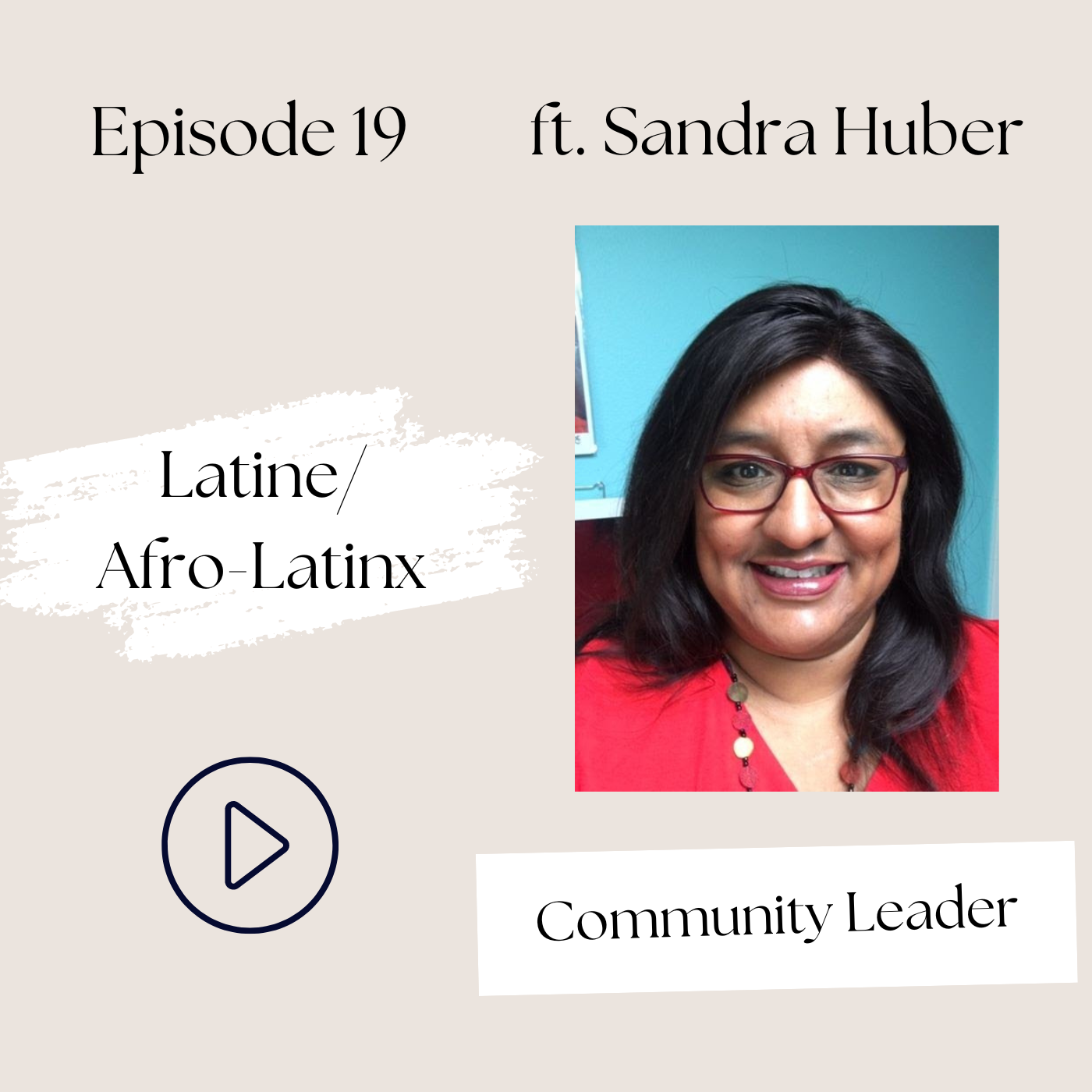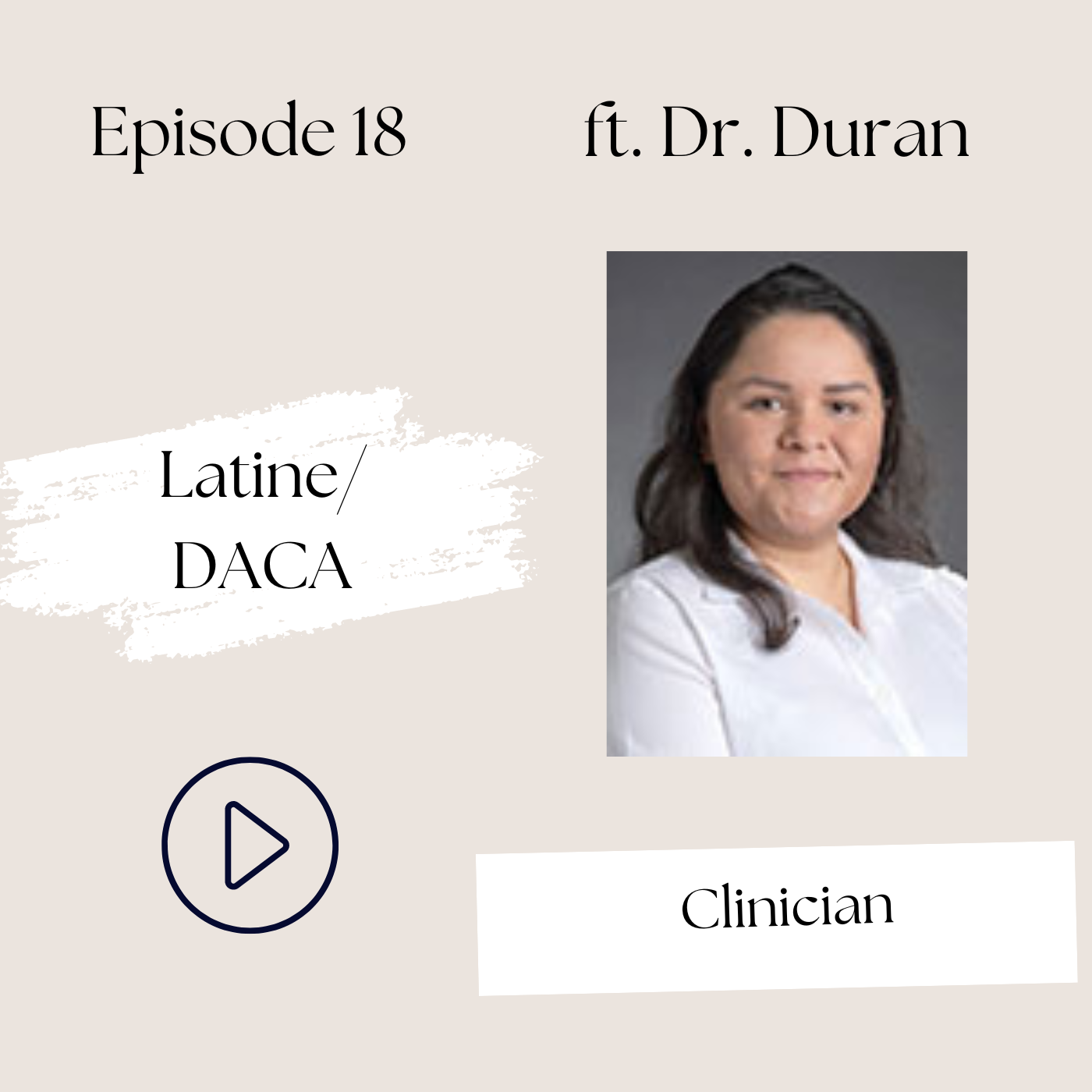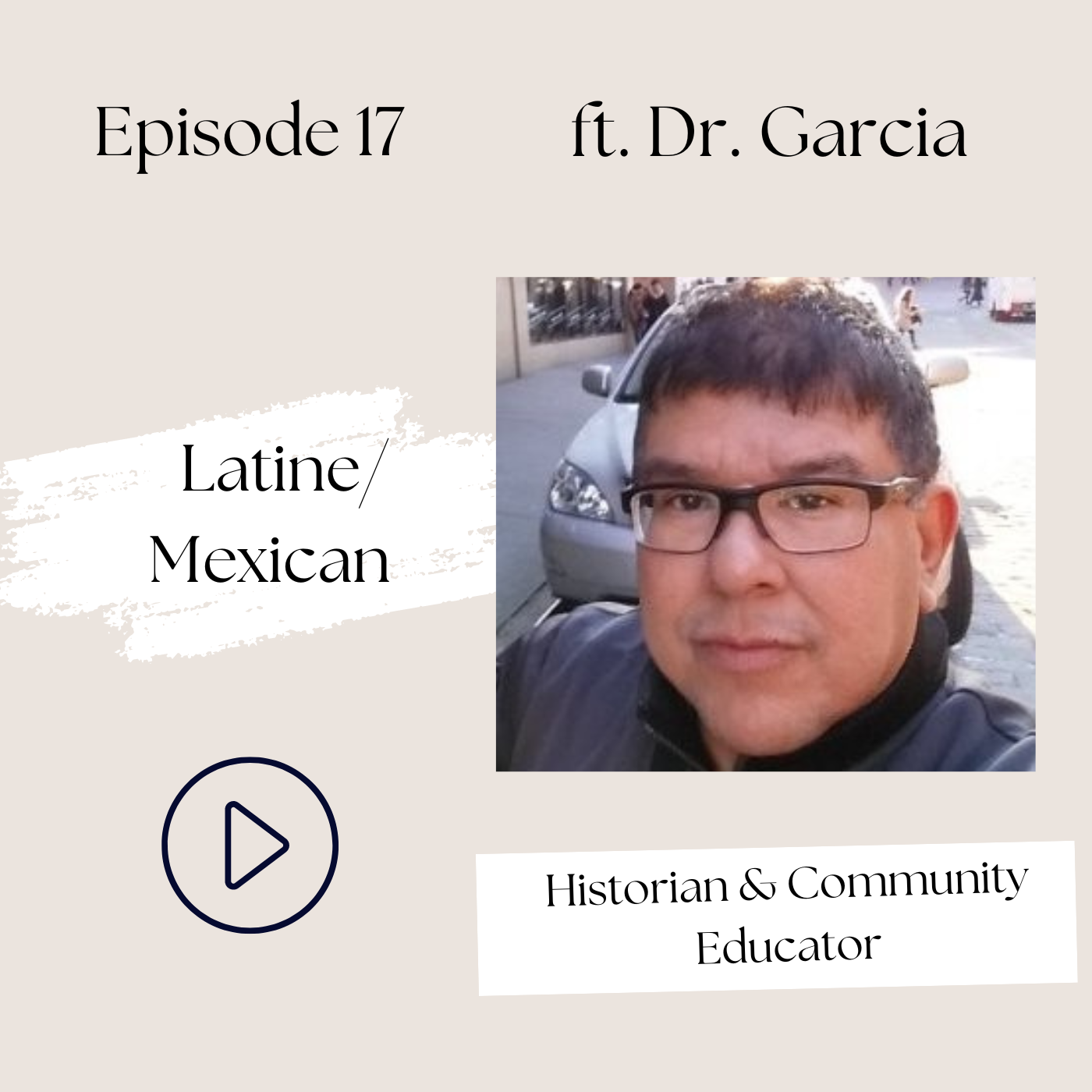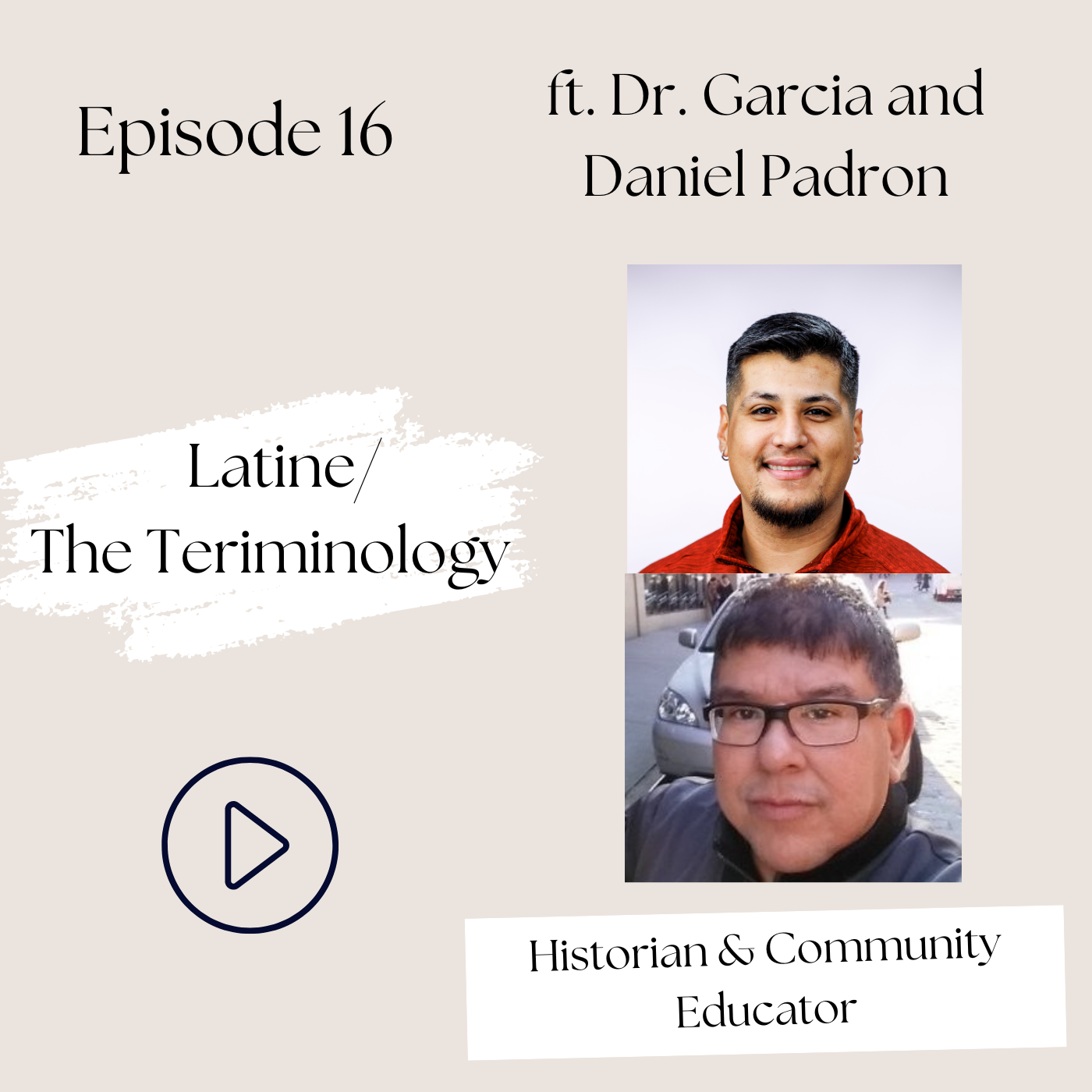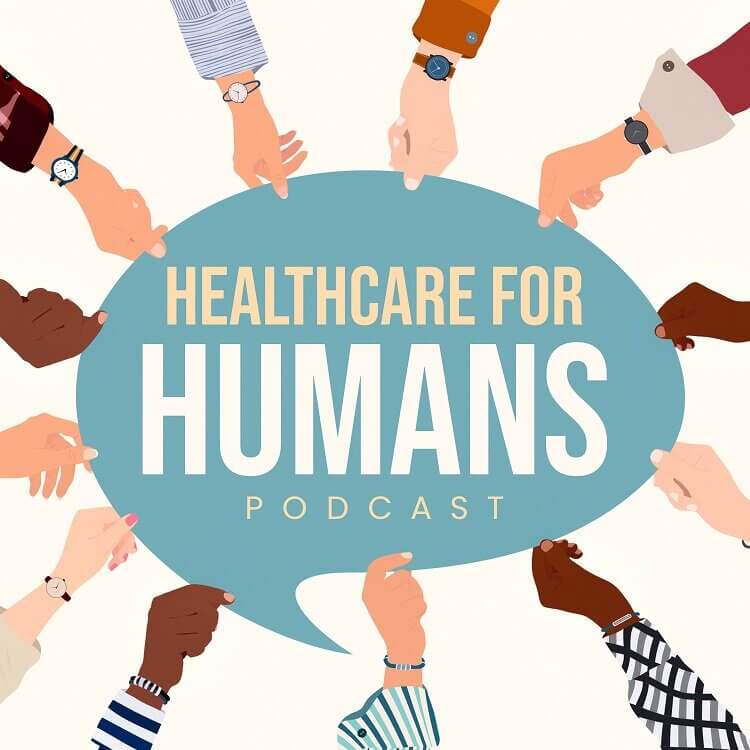
Healthcare for Humans
This show is dedicated to educating clinicians on how to care for culturally diverse communities so we can be better healers.
All Episodes
43 I Cross-Cultural TB Reflections—Ethiopian, Kenyan & Marshallese Perspectives w/ Duncan Reid and Franky Erra
Summary:
In this reflection series, we delve into the grave impact of military occupation and nuclear testing on Bikini Atoll, as Duncan Reid links this history to the high rate of tuberculosis in the Marshallese community. We explore community beliefs and experiences with BCG vaccination and TB, confronting stigma and confusion surrounding the disease, as illustrated in deep conversations with Dr. Ejara in the Ethiopian community and Reverend Paul Karume of the Kenyan community. Navigating through stories of migration for better healthcare access, we examine the intricate challenges faced by individuals, like prioritizing health amidst concerns for housing and employment. We wrap up by emphasizing the importance of cultural literacy in health communication, reflecting on how terms like "latent" and "inactive" TB shape perceptions and articulating the urgency of community engagement to foster understanding and support.
Timestamped Overview:
02:14: Link between military occupation, nuclear testing, and TB rates in the Marshallese community.
06:37: Community beliefs and the impact of BCG vaccine on TB perception and stigma.
11:05: Misunderstandings around TB testing, false positives, and the BCG vaccine mark.
15:22 Exploring latent TB awareness and myths in various cultural contexts.
19:48: The role of cultural literacy and metaphors in health communication for TB.
24:33: Stigma's effect on willingness to discuss and address tuberculosis within communities.
29:15: Challenges of prioritizing health amidst critical social and economic issues.
34:12: The importance of culturally sensitive terminology in discussing latent TB.
Next StepVisit our website, Healthcare for Humans, and join our community to enjoy exclusive benefits at https://www.healthcareforhumans.org/support/
Earn CME Credits: Clinicians, enhance your learning by earning valuable continuing education credits while listening. Utilize your CME funds to join our community.
Support Our Mission: Non-clinicians, explore exclusive content and contribute to our collective journey.
Be an Active Participant: Go beyond listening. Shape our narrative by co-creating episodes with us.
Be part of our community by visiting https://www.healthcareforhumans.org/support/. Follow us on Instagram @healthcareforhumanspodcast
Sponsored by: Public Health – Seattle & King County TB Clinic
April 17, 2024
The Human Side of Latent TB: The Congolese Community Perspective (Ep.43)
Summary:
This episode will review the complexities of managing latent tuberculosis within the Congolese community, discussing the critical need for cultural sensitivity and community engagement when addressing latent TB. With insights from Dr. Jean Jacques and host Duncan Reid, we unpack healthcare providers' challenges, from bridging language and cultural gaps to tackling the stigma associated with treatment. Our conversation highlights the vital role of Congolese clinicians, the importance of consistent funding and support from state efforts, and the unique health concerns within the community. Through Jean Jacques' personal experiences and professional background, we emphasize how tailored public health initiatives and collaboration with community and faith leaders can lead to more effective communicable and chronic disease management, ensuring that healthcare practices are respectful of and responsive to the community's history, perspectives, and needs.
Timestamped Overview:
02:10 Importance of incorporating healthcare practices from the Democratic Republic of Congo.
07:35 Challenges and confusion in TB diagnosis and vaccination understanding in the Congo vs. the US.
14:15 Role of consistent funding and trust-building with African communities.
18:02 The impact of cultural gaps and misinformation on TB treatment adherence.
21:50 Utilizing foreign medical professionals for community outreach on TB.
25:40 Differences in public visibility of TB patients and treatment processes in the DRC and US.
29:05 Addressing latent TB through tailored community engagement strategies.
33:15 Conflicting social norms and religious beliefs affecting TB treatment in the African community.
37:22 Importance of connecting with faith and community leaders for authentic health issue feedback.
40:50 Need for sustained public health efforts and cultural sensitivity in treating immigrant and refugee populations.
Next Step:
Visit our website, Healthcare for Humans, and join our community to enjoy exclusive benefits at https://www.healthcareforhumans.org/support/
Earn CME Credits: Clinicians, enhance your learning by earning valuable continuing education credits while listening. Utilize your CME funds to join our community.
Support Our Mission: Non-clinicians, explore exclusive content and contribute to our collective journey.
Be an Active Participant: Go beyond listening. Shape our narrative by co-creating episodes with us.
Be part of our community by visiting https://www.healthcareforhumans.org/support/. Follow us on Instagram @healthcareforhumanspodcast
Sponsored by: Public Health – Seattle & King County TB Clinic
April 3, 2024
The Human Side of Latent TB: Community Insights with Franky and Mohammed (Ep. 42)
Summary:
We dive into the complexities of navigating the US healthcare system with insights from Franky and Mohammad, focusing specifically on the Marshallese community's challenges and the widespread misconceptions about TB screenings in diverse populations. Together, we explore culturally responsive strategies to improve trust and treatment adherence, including employing trusted community messengers, understanding patient education needs, and addressing the nonclinical aspects of care. Our discussions underscore the necessity of patient-centered communication, acknowledging cultural beliefs and practices in treatment, and the critical role of community navigators in facilitating accessible healthcare. By acknowledging these crucial factors, we aim to foster a deeper understanding of and responsiveness to the unique healthcare needs within various communities.
Timestamped Overview:
02:04 Addressing the complexity of the US healthcare system and the Marshallese community's challenges.
07:15 Tackling TB misconceptions and the impact on screenings within diverse populations.
13:30 Importance of culturally responsive care and trusted community messengers in healthcare.
17:48 Strategies for medical professionals to build trust and set proper expectations for patient care.
22:27 Role of community navigators in facilitating healthcare access and understanding.
27:35 Utilizing metaphors and visual aids for effective communication about latent TB.
32:42 Balancing respect for patients' decisions while advocating for preventive care.
37:50 Overcoming cultural and literacy barriers with diverse educational materials.
42:57 Emphasizing a collective family approach to healthcare in community engagement.
47:11 Discussing latent TB's prevalence, risks, and the necessity of screening and treatment.
Next Step:
Visit our website, Healthcare for Humans, and join our community to enjoy exclusive benefits at https://www.healthcareforhumans.org/support/
Earn CME Credits: Clinicians, enhance your learning by earning valuable continuing education credits while listening. Utilize your CME funds to join our community.
Support Our Mission: Non-clinicians, explore exclusive content and contribute to our collective journey.
Be an Active Participant: Go beyond listening. Shape our narrative by co-creating episodes with us.
Be part of our community by visiting https://www.healthcareforhumans.org/support/. Follow us on Instagram @healthcareforhumanspodcast
Sponsored by: Public Health – Seattle & King County TB Clinic
March 21, 2024
Hepatitis B—Culturally Responsive Care to Address the Stigma & Silence (H. Nina Kim, Ep.41)
Summary:
We sit down with H. Nina Kim to explore the delicacy of discussing hepatitis B without trigger, the consequential distrust in healthcare within immigrant communities tied to historical traumas, and the necessity for culturally sensitive approaches. We delve into the responsibility of healthcare providers to empower and educate patients using relatable metaphors and community-led initiatives, emphasizing the importance of dismantling stigma and fostering hope. In our conversation, we underscore the significance of precise communication, including the use of high-quality interpreter services and the shift towards inspiring campaigns that feature community leaders. Moreover, we discuss the role of organizations like the Hepatitis B Foundation in providing a voice to those affected by the virus, creating a supportive online network, and the potential for future inclusive health programs informed by affected communities themselves. Join us as we advocate for a more understanding and equitable healthcare landscape that prioritizes the human element at the heart of care.
Timestamped Overview:
02:10 The detrimental effects of military metaphors and historical trauma on immigrant trust in healthcare.
07:35 The negative impact of US atomic bomb testing on Marshall Island communities' health and trust.
12:50 Shifting hepatitis B campaigns towards inspiring messages and empowerment.
17:30 A discussion on the use of fear in healthcare messaging and the importance of community-led approaches.
22:42 Providing resources and education to clinicians for better hepatitis B counseling.
28:15 The role of the Hepatitis B Foundation in combating stigma through storytelling.
33:28 Normalizing hepatitis B, emphasizing commonality, and ensuring patient understanding of treatment.
38:40 Tackling stigma, discrimination, and the need to educate about transmission in vulnerable communities.
44:15 Explaining asymptomatic diseases and bridging patient skepticism with trust-building methods.
49:50 Decolonizing healthcare by involving community members and culturally responsive programs.
Helpful Links:
Hepatitis B Online Curriculum - Free CME Curriculum Edited by Dr. Kim
Hepatitis B Hub - Resource for Patients in Multiple Languages
Next Step:
Visit our website, Healthcare for Humans, and join our community to enjoy exclusive benefits at https://www.healthcareforhumans.org/support/
Earn CME Credits: Clinicians, enhance your learning by earning valuable continuing education credits while listening. Utilize your CME funds to join our community.
Support Our Mission: Non-clinicians, explore exclusive content and contribute to our collective journey.
Be an Active Participant: Go beyond listening. Shape our narrative by co-creating episodes with us.
Be part of our community by visiting https://www.healthcareforhumans.org/support/. Follow us on Instagram @healthcareforhumanspodcast
Sponsored by: Public Health – Seattle & King County TB Clinic
March 7, 2024
50 Years Later—Michael Byun Reflects on ACRS Approach to Addressing Holistic Health of AAPI Communities (Ep. 40)
Next Step:
Visit our website, Healthcare for Humans, and join our community to enjoy exclusive benefits at https://www.healthcareforhumans.org/support/
Earn CME Credits: Clinicians, enhance your learning by earning valuable continuing education credits while listening. Utilize your CME funds to join our community.
Support Our Mission: Non-clinicians, explore exclusive content and contribute to our collective journey.
Be an Active Participant: Go beyond listening. Shape our narrative by co-creating episodes with us.
Be part of our community by visiting https://www.healthcareforhumans.org/support/. Follow us on Instagram @healthcareforhumanspodcast
Summary:
We dive deep into the nuanced world of healthcare interpretation and cultural competency with Michael Byun, exploring the critical role language and cultural understanding play in delivering care to diverse communities. Michael reflects on his experience at ACRS and their 50 years of service, addressing the challenges faced by Asian American Pacific Islander communities, from misconceptions in traditional healing practices to the stigmatization of mental health. We examine the importance of inclusive services, highlighting programs like Club Bamboo, and share personal stories that underscore the need for empathy, patience, and tailored approaches to healthcare. Our conversation spans the difficulties in mental health care within tight-knit communities, generational differences in treatment acceptance, and the potency of community-based healing strategies, all through the lens of Michael's rich background as an immigrant from Korea and a leader in community-centric healthcare initiatives.
Timestamped Overview:
02:34 Emphasizing the importance of cultural nuances and interpreter proficiency in healthcare.
08:15 Discussing interpreter complexities and the mental health needs within the AAPI community.
14:50 Celebrating ACRS's 50th anniversary and its impact on community services for Asian and Pacific Islander communities.
22:07 Addressing the stigma around mental health and implementing community-oriented solutions.
29:15 Examining the necessity of culturally sensitive practices in mental health care.
34:40 Exploring the social aspects of healthcare and combating isolation through Club Bamboo.
41:38 Integrating traditional and culturally informed approaches to mental health treatment.
47:50 Highlighting the role of community in processing feelings and healing from trauma.
53:27 Discussing the importance of community-level strategies for intergenerational support and leadership.
February 21, 2024
The Founding of Asian Counseling & Referral Services (ACRS): A Conversation with Theresa Fujiwara (Ep. 39)
Next Step:
Visit our website, Healthcare for Humans, and join our community to enjoy exclusive benefits at https://www.healthcareforhumans.org/support/
Earn CME Credits: Clinicians, enhance your learning by earning valuable continuing education credits while listening. Utilize your CME funds to join our community.
Support Our Mission: Non-clinicians, explore exclusive content and contribute to our collective journey.
Be an Active Participant: Go beyond listening. Shape our narrative by co-creating episodes with us.
Be part of our community by visiting https://www.healthcareforhumans.org/support/. Follow us on Instagram @healthcareforhumanspodcast
Summary:
On this episode, we interview Theresa Fujiwara, co-founder of the Asian Counseling and Referral Service (ACRS). We discuss the grassroots origins of ACRS and its pivotal role in providing culturally responsive mental health care to the Asian Pacific Islander community, filling a void left by national institutions. We then talk about the organization's approach, which blends Eastern and Western medicine, and the significance of community engagement in healing from trauma. The episode also explores the challenges of addressing stigma, language barriers, and diverse needs in mental health care while emphasizing the importance of integrated support and the role of community-based solutions.
Timestamped Overview:
05:46 Learning about Japanese American incarceration, becoming an activist
12:45 International Community Health Services, International Examiner, and ACRS celebrate 50 years.
19:20 Holistic approach to mental health treatments.
23:23 Ensuring trust, support, and interpretation for clients.
26:21 Difficulty creating a pipeline for mental health workers.
28:33 Communities organize around church, club, and assistance.
31:58 Gathering should have a purpose and healing.
February 7, 2024
Navigating Machismo, LGBTQ+ Identity, and Mental Health in Latino Communities (Fernanda Mazcot, Ep 38)
Next Step:
Visit our website, Healthcare for Humans, and join our community to enjoy exclusive benefits at https://www.healthcareforhumans.org/support/
Earn CME Credits: Clinicians, enhance your learning by earning valuable continuing education credits while listening. Utilize your CME funds to join our community.
Support Our Mission: Non-clinicians, explore exclusive content and contribute to our collective journey.
Be an Active Participant: Go beyond listening. Shape our narrative by co-creating episodes with us.
Be part of our community by visiting https://www.healthcareforhumans.org/support/. Follow us on Instagram @healthcareforhumanspodcast
Summary:
In this episode, we continue the conversation with guest Fernanda Mazcot about the challenges of mental health accessibility, focusing on the value of drop-in services in breaking down barriers and making mental health more approachable and inclusive. The discussion also delves into the specific approaches to addressing mental health for the youth in the Latino community, including nonclinical methods such as workshops, book clubs, and cultural events. The conversation addresses sensitive topics such as machismo and the LGBTQ+ identity within the religious and faith-based Latino community. Fernanda shares insights on supporting smaller communities within the larger community, addressing generational trauma, and the importance of understanding and respecting cultural beliefs and practices when providing mental health services.
Timestamped overview:
00:00: Continuing mental health accessibility discussion, including inclusivity.
06:01: Cultural events foster belonging and youth mental health.
08:40: Supporting marginalized groups within the Latino community.
12:36: Respect culture, understand religion, and challenge traditional gender roles.
13:35: Educating parents and building acceptance in the community.
18:27: Concerns about elder care and child safety
January 24, 2024
Solutions to the Mental Health Crisis—Culturally Responsive Mental Healthcare by BIPOC, for BIPOC Communities (Fernanda Mazcot, Ep 37))
Next Step:
Visit our website, Healthcare for Humans, and join our community to enjoy exclusive benefits at https://www.healthcareforhumans.org/support/
Earn CME Credits: Clinicians, enhance your learning by earning valuable continuing education credits while listening. Utilize your CME funds to join our community.
Support Our Mission: Non-clinicians, explore exclusive content and contribute to our collective journey.
Be an Active Participant: Go beyond listening. Shape our narrative by co-creating episodes with us.
Be part of our community by visiting https://www.healthcareforhumans.org/support/. Follow us on Instagram @healthcareforhumanspodcast
Summary:
In this episode, we discuss the challenges and barriers individuals from different cultures face in accessing mental health support, featuring guest Fernanda Mazcot. We explore the stigma and perceptions of mental illness within Latino communities, emphasizing the need for better understanding and conversation around mental health. Mazcot shares her personal experience as a caregiver and the impact of limited access to mental health resources, advocating for tailored mental health services for BIPOC communities and a holistic approach to mental health care. We discuss a model for connecting individuals to telehealth sessions for mental health care and stress the necessity of understanding individuals' cultural and linguistic backgrounds in providing mental health care. The episode concludes with a call for representation and better support for caregivers, emphasizing the role of peer counseling and intensive case management.
Timestamped overview
00:00 Mental health care faces accessibility, affordability, approachability challenges.
03:06 Fernanda shares transformative peer support model.
09:16 Navigating family and culture without defined boundaries.
12:16 Latino mental health barriers: access, stigma, resources.
13:10 Access to mental health is a global issue.
16:14 Hospital released me with baby and machines.
20:01 Mom's mental health struggles during son's illness.
22:56 Advocating for peer support through Medicaid reimbursement.
28:30 Navigating cultural nuances in accessing mental healthcare.
30:23 Survivor of car accident, mother and I.
35:03 Casual step-by-step care for mental health.
36:26 Emphasize need for comprehensive healthcare access and sharing.
January 18, 2024
Advancing Healthcare Equity: A Recap of Healthcare for Humans’ Journey (Ep. 36, Raj Sundar)
Next Step:
Visit our website, Healthcare for Humans, and join our community to enjoy exclusive benefits at https://www.healthcareforhumans.org/support/
Earn CME Credits: Clinicians, enhance your learning by earning valuable continuing education credits while listening. Utilize your CME funds to join our community.
Support Our Mission: Non-clinicians, explore exclusive content and contribute to our collective journey.
Be an Active Participant: Go beyond listening. Shape our narrative by co-creating episodes with us.
Be part of our community by visiting https://www.healthcareforhumans.org/support/. Follow us on Instagram @healthcareforhumanspodcast
Summary:
In this solo episode, host Raj Sundar reflects on the past year and the growth of the "Healthcare for Humans" podcast. He shares insights into the challenges and rewards of balancing multiple roles alongside personal responsibilities and celebrating milestones such as reaching 34 episodes and adding new team members. Raj discusses the importance of facilitating meaningful conversations, enhancing communication skills, and learning from guests to understand culturally diverse communities better. He emphasizes listening, storytelling, and embracing discomfort as essential elements in effecting tangible change.
Timestamped overview:
00:00 Balancing structure and engagement through historical content.
03:20 Finding purpose and hope through global connections.
07:04 Thanks for joining, share, support, see you!
December 27, 2023
Therapeutic Violence—How Mental Healthcare Falls Short in Immigrant Communities (Ep. 35)
Next Step:
Visit our website, Healthcare for Humans, and join our community to enjoy exclusive benefits at https://www.healthcareforhumans.org/support/
Earn CME Credits: Clinicians, enhance your learning by earning valuable continuing education credits while listening. Utilize your CME funds to join our community.
Support Our Mission: Non-clinicians, explore exclusive content and contribute to our collective journey.
Be an Active Participant: Go beyond listening. Shape our narrative by co-creating episodes with us.
Be part of our community by visiting https://www.healthcareforhumans.org/support/. Follow us on Instagram @healthcareforhumanspodcast
This episode features community leaders and prior podcast guests Ahmed Ali, Joseph Seia, Jennifer Huong, James Hang, and Morhaf. The episode delves into the complexities of mental health care within culturally diverse communities, emphasizing the need for culturally competent and trustworthy healthcare professionals and the challenges of language barriers, historical oppression, and cultural stigmas. The conversation covers topics such as the historical context of mental health in immigrant communities, the need for redefining mental health based on core community needs, and the importance of storytelling and non-clinical, culturally sensitive spaces for mental health support. The panel also discusses the impact of historical oppression on language and healing practices and the need to restore and build upon traditional healing practices.
Timestamped overview
09:14 Ahmed Ali acknowledges ancestors, discusses mental health.
10:24 Language barriers hinder mental health understanding.
14:24 Strangers are reluctant to share stories without trust.
17:26 Discussion about lost languages and cultural healing.
24:32 James Heng's community health work in summary.
29:46 Challenges in access to healthcare for Pacific Islanders
34:57 Global doctors understand body well, but face barriers.
40:37 Trust is crucial in patient-provider relationships.
41:29 Pharmacist offers understanding and tailored treatment options.
December 12, 2023
Filipinos— Beyond the Rice Cooker: Cuisine and Cultural Values of the Filipino Community (Devin Cabanilla, Ep 34)
In this episode, host Raj Sundar engages in a conversation with Devin, a dedicated community organizer within the Filipino-American community, exploring the intersection of nutrition and cultural values within healthcare.
Raj and Devin navigate the intricacies of Filipino cuisine, delving into its complexities influenced by various cultures. The discussion extends to the challenges of providing dietary counseling within the Filipino community, considering the unique aspects of their culinary practices. The conversation expands to explore cultural values such as "utang na loob" (debt of care) within the Filipino community, emphasizing the significance of collective consciousness.
They reflect on the impact of these cultural values on healthcare decisions and the delicate balance needed to integrate cultural traditions with necessary changes for improved health outcomes. Devin, a proud Filipino embracing his Ilocano heritage, shares personal anecdotes, recounting moments of surprise during visits to his grandma's house. The unexpected preparation of dishes like bisteq, a common beef and pork recipe from mainland Luzon, Philippines, serves as a testament to the diverse influences of region and generation on Devin's dietary preferences.
Timestamped overview
02:14: Values, obligation, suffering, community
04:23: Food diversity reflects region and generation.
07:55: shiomai, mommy soup, adobo duck.
10:32: Laughed in face of provider's rice advice; consuming junk snacks from relatives.
15:51: Cultural barriers, family dynamics, and hierarchy.
17:00: privilege, family, group obligation, choice dynamics, life or death
20:15: Cultural interaction with nurse; acceptance of suffering.
November 27, 2023
Filipinos— The Story of the “Forgotten Asians” (and how did we get SO MANY incredible Filipino nurses in healthcare?) (Devin Cabanilla, Ep 33)
In this episode, host Raj Sundar explores the history and experiences of Filipino Americans in the healthcare profession with guest Devin Cabanilla. Together, they discuss the complex identities of Filipino Americans shaped by colonization and diaspora and its impact on their contributions to healthcare.
The conversation covers waves of Filipino immigration to the U.S., from early 1900s elite students to post-World War II healthcare professionals and war brides. They delve into the clash between generations within the Filipino-American community and the significant presence of Filipino nurses in the U.S. healthcare system. The episode also focuses on the ongoing culture clash and challenges Filipino Americans face while acknowledging their healthcare contributions.
Guest Devin Cabanilla, an advocate for Filipino identity and representation, draws inspiration from Fred Cordova's "Filipinos Forgotten Asian Americans." Devin actively addresses cultural erasure, challenging stereotypes within the broader Asian American community and reclaiming Filipino identity.
Timestamped overview
01:57 Devin Cabanilla: instrumental in Filipino American curriculum.
05:57 "Being forgotten: Filipinos face isolation and stereotypes."
08:49 Complexity of diaspora of Filipinos abroad.
12:56 Brief history of Philippines: US colonialism, Spanish colony.
17:55 Filipino students pursued education in America.
20:10 Resuming studies, common stories, limited opportunities.
26:47 Generations define Filipino American history, Indepinos significant.
30:56 WW2 vets given US citizenship, Filipino immigrants, culture clash, healthcare professions, US occupation
32:48 Clash of laborers and college-educated immigrants.
November 20, 2023
Care and Technology: Empowering Families as Collaborators in Healthcare (Tanja Ahlin, Ep 32)
In this episode," we continue our conversation with Tanja Ahlin, a researcher and anthropologist. We delve into the complex dynamics that arise when family members bring their own healthcare knowledge into the mix. As a family medicine physician, I've come to realize the significance of this phenomenon and the valuable insights that family members can offer. However, there is often skepticism or hesitation from healthcare professionals. In this episode, we discuss the importance of fostering trust and encouraging family participation in the care process. Join us as we explore the concept of care collectives and how digital technologies have facilitated communication and support for transnational families.
Timestamped Overview
[00:01:35] Family insights are valuable, but healthcare skepticism persists.
[00:05:44] Mediated presence is important, but physical visits are vital.
[00:07:26] Virtual communication as a distant bridging experience.
[00:11:38] Transition to practical transnational care collectives, including remittances and formalized healthcare for immigrant families.
[00:16:40] Nurses give parents medical advice, it works.
[00:18:21] Encouraging openness among healthcare professionals for transnational care.
[00:22:29] Transnational care collective uses emotions for effectiveness.
November 6, 2023
Caring Across Borders: Navigating the Complexities of Transnational Care Collectives (Ep 31, Tanja Ahlin)
In this episode of "Healthcare for Humans," host Raj Sundar is joined by guest Tanja Ahlin, a researcher and anthropologist, to explore the concept of good care in the context of chronic illness and care collectives. They discuss the limitations of healthcare systems' metrics for measuring success in chronic illness care and emphasize the importance of finding individualized approaches that go beyond clinical outcomes. They delve into the role of technology in facilitating care at a distance, particularly in transnational care collectives, where families use tools like mobile phones and webcams to support each other. The episode also touches on the undervalued nature of informal care, the impact of gender and wage gaps in caregiving, and the significance of material factors and power dynamics in care practices. Overall, the conversation challenges traditional notions of care and highlights the need for a more holistic and inclusive approach in healthcare.
Timestamped Overview
[00:01:05] Care goes beyond healthcare: family, technology, collectives.
[00:05:45] Material things shape care at different stages.
[00:09:14] Care in community undervalued; affects wage/gender gap.
[00:13:23] Using chronic illness to redefine good care.
[00:17:00] Empirical ethics challenges healthcare norms for good care.
[00:24:59] Reaction to technology in healthcare, lack of consideration for users.
[00:26:01] Telemedicine's pilot stage is challenged by accessible technologies.
[00:30:35] WhatsApp transformed elder care in India.
[00:33:02] Connecting generations, combating social isolation through technology.
October 24, 2023
Shankar Rai: A Surgeon’s Journey from Rural Nepal to International Recognition (Ep. 30)
In this episode of Healthcare for Humans, host Raj Sundar interviews Shankar Rai, a pioneering plastic surgeon from Nepal. Shankar shares his incredible journey, from being the sole healthcare provider in a remote area without access to surgical facilities, to becoming the creator of Nepal's first medical residency program for plastic reconstructive surgery. He discusses the importance of long-term support and training for surgeons in their own countries, highlighting the significant impact and sustainability it brings. Shankar's story showcases persistence, overcoming barriers, and the power of compassion in the medical field. This episode emphasizes the need for building local capacity and providing holistic care that goes beyond medical treatments. Timestamped Overview: [00:05:17] Story of Shankar. Remote doctor treated basic health issues, wanted to become a surgeon.[00:09:42] Shankar facilitated US trip, trained for plastic surgery.[00:15:48] Doubts about return lead to uncertainty and solution-seeking.[00:22:13] Milk injections for TB treatment and the advancement of medicine[00:23:49] The importance of humanity in medicine.[00:29:34] Resurge as an organization with immense resources.[00:30:24] Support over time helps multiply Resurge's impact.
October 9, 2023
The Story of “Healthcare for Humans” and My Reflections on Cultural Communication in Medicine (Ep. 29)
In this episode of Healthcare for Humans, Dr. Raj Sundar is interviewed by Dr. Anne Liebel on her podcast, 10 Minutes to Better Communication. Dr. Sundar discusses the story behind Healthcare for Humans and his journey to provide better care to culturally diverse communities. He shares his experiences communicating with patients with different values and worldviews and how he turned to podcasting as a medium to explore and learn about culture in a nuanced and engaging way. Through storytelling and open discussions, Dr. Sundar aims to improve patient relationships and enhance cultural understanding in healthcare.Timestamped Overview:[00:00:00] Healthcare for Humans: Podcast journey and intentions.[00:04:34] Clinicians struggle with limited time for education and continued learning. Podcasts provide a convenient way to learn and be entertained. This inspired the use of podcasts to discuss nuanced and contradictory cultural issues.[00:09:09] Unaware vacation talk about Hawaii damages patient relationships.[00:13:14] Changing perspective and listening empowers vulnerable patients.[00:14:56] Open-ended questions save time in medicineAcknowledgements: Tessa Chu (Co-producer), Maha Razzaki (Writer)Connect with Us:Visit the official Healthcare for Humans website Visit@healthcareforhumanspodcast (Instagram) to stay updated with our latest episodes
September 25, 2023
Refugee Series/LIVE from North American Refugee Healthcare Conference—The Power of Stories, Community Voice, and Mutual Support (Ep. 28)
In today's episode, we have a special treat for you as we recap the North American Refugee Health Conference (NARHC) held in Calgary, Canada. This conference, hosted by the Society of Refugee Healthcare Providers, brought together healthcare professionals, researchers, and community scholars to discuss and address the unique challenges refugees and immigrants face in accessing healthcare. Joining me today are a diverse group of guests, including Duncan Reid from the International Medicine Clinic, Rachel Talavlikar from the Mosaic Refugee Health Clinic, and representatives from the Community Scholars Program in Calgary. Together, we will dive into the key themes and takeaways from the conference, ranging from respecting Indigenous voices to the power of storytelling and healing through art. the importance of centering community voices and restructuring power and authoritybuilding strong connections within our communities. the experiences of internationally trained physiciansthe role of research in addressing healthcare disparitiesthe progress we've made in truth and reconciliation within the Canadian healthcare systemResources:National Resource Center for Refugees, Immigrants, and Migrants (NRC-RIM)EthnomedRefugee Health YYCTimestamp:[00:05:58] Progress in truth and reconciliation in Canada[00:14:25] Talks contrast deep pain and healing process.[00:19:26] Recognizing the value of internationally trained healthcare workers.[00:22:24] Refugee review board offers research consultation.[00:27:19] Language's power on refugee status realization.[00:37:01] Hire diverse community scholars for successful research.[00:39:47] Finding hope in overwhelming times is vital.
September 4, 2023
Refugee Series/Humanity Amidst Chaos: The Resilience and Determination of James Achuli, a South Sudanese Refugee (Ep 27)
James Achuli is a refugee student studying International Relations at the University of British Columbia. He first arrived in Calgary, Canada in February 2022 as a refugee. At the immigration office, James was asked about his identity and where he came from. He shared his experiences of being born during the civil war in Sudan, growing up as an internally displaced person, and witnessing the destruction caused by war. Despite the hardships, James was determined to receive an education and received a scholarship to further his studies. He faced another war in South Sudan in 2016, where he witnessed the death of a friend and was then taken by armed men. With the help of a kind woman, James managed to escape and joined a group of refugees walking towards safety in Uganda. Eventually, he arrived at a refugee camp and faced the daily challenges and struggles that refugees endure. James acknowledges the difficulties faced by refugees, such as forced displacement, persecution, and lack of basic necessities. Through his experiences, he strives to shed light on the struggles faced by refugees and advocate for their rights and better opportunities.
August 21, 2023
Refugee Series/Boban Stojanović : Triumph Over Trauma – A Tale of Hope, Resilience, and Acceptance (Ep.26)
In this episode of "Healthcare for Humans" from the North American Refugee Conference, Dr. Raj Sundar records guest Boban Sojanovic, a Serbian Canadian peace and LGBTQ+ human activist, to share his incredible journey of resilience and hope. BBoban faced death threats in his homeland and had to flee to Canada, where he dealt with melanoma and the suicide of his father. Through poetry and therapy, Boban found healing and transformed his pain into a source of strength. Dr. Sundar emphasizes the importance of listening and bearing witness to the stories of refugees and trauma survivors while highlighting Boban's four powerful life lessons: embracing life's circumstances, celebrating personal transformation, recognizing the abundance of love and understanding in the world, and holding on to hope amidst challenges.
August 15, 2023
Refugee Series—The Human Faces of Refugee Trauma: Dr. Barakat Shares Stories of Survival (Ep. 26)
This episode features Dr. Suzanne Barakat, a family physician and executive director of the Health and Human Rights Initiative at the University of California, San Francisco. Dr. Barakat shares her experiences and expertise in working with refugees, asylum seekers, and stateless persons, shedding light on the terminology, history, and challenges these marginalized communities face. She emphasizes the importance of storytelling to create empathy and change, discussing the emotional toll on storytellers and encouraging listeners to reflect on their own perceptions. The episode also addresses actionable steps that individuals can take to support refugees and marginalized communities.Watch the White Helmet documentary on Netflix Listen to the Reveal podcast to dive deeper Support the Health and Human Rights Initiative and Society of Refugee Healthcare ProvidersGet trained Asylum Medicine Training Initiative, or AMTI, trains clinicians how to do forensic medical evaluations.
August 8, 2023
Culturally Sensitive Nutrition—Fostering Trust and Understanding in Healthcare (Aliyah Haq, Ep 24)
Aliyah Haq is an experienced registered dietitian with a career spanning 25 years. As the former president of Nutrition First, a prominent public health organization, she spearheaded a nationwide program emphasizing the importance of holistic nutrition education. In this episode of "Healthcare for Humans," host Dr. Raj Sundar and guest Aliyah Haq delve into the topic of culturally sensitive nutrition counseling. They stress the importance of building trust and understanding with patients, acknowledging the significance of food in their lives. The speakers share personal stories and experiences, highlighting the power of trust in making a difference in patients' health. They discuss the different approaches to nutrition advice depending on culture and emphasize the need to tailor recommendations to fit individual food habits and preferences. The episode also explores the challenges and strategies in pediatric nutrition counseling, particularly in addressing childhood obesity. Listeners are encouraged to embrace their cultural food traditions while making positive changes for chronic diseases and promoting health and physical activity in children.[00:05:01] Conversation, not commands, for effective communication.[00:06:56] Culture influences food choices, including religious practices.[00:10:05] Food choice impacts well-being, self-control, and satisfaction.[00:13:19] Culture impacts portion sizes. Ask about eating habits.[00:18:10] You control your body; take care.[00:21:43] Pediatric nutrition strategy: cultural differences and obesity.[00:27:12] Patient food history guides friendly, rapport-building conversations.[00:32:05] Trusting dietitians with patients' health is crucial.[00:35:12] Challenging situation leads to successful trust-building.
July 25, 2023
Reflection Series—The Power of Cultural Humility and Cultural Safety to Transform Healthcare (Maha Razzaki, Ep 23)
Join me, Dr. Raj Sundar, and my colleague Maha Razzaki, as we navigate the complex terrain of cultural competence, humility, and safety in healthcare. Listen in as we delve into the differences between these concepts and their impact on providing culturally responsive care. Maha shares her experiences as a Program Manager for a Member Equity, Inclusion, and Diversity Program, and we discuss the importance of listening to diverse community voices to build meaningful connections. In this discussion, we take an in-depth look at cultural humility, a practice that can move us beyond cultural competency. We discuss the model minority myth and its erasure effect on the challenges that Asian Americans face. We also talk about understanding the power dynamics between clinicians and patients and how cultural humility can help build rapport. We also examine the complexities of identity and discuss the role of cultural safety in healthcare. Lastly, we touch on the difficulty of speaking up against a power dynamic in healthcare and why it's crucial to recognize and appreciate one another's contributions to the healthcare system.(0:00:00) - Cultural Competence and Humility in Healthcare (10 Minutes)We explore the differences between cultural competence, cultural humility, cultural safety and the dizzying number of terms to define culturally responsive care. We also explore the layers of identity we all hold and how to redefine these concepts to serve our needs better. Maha Rezaki joins me to discuss her journey of becoming a Program Manager for a Member Equity, Inclusion and Diversity Program. We also talk about the importance of listening to diverse community voices to understand them better and build more meaningful connections.(0:09:34) - Cultural Competency and Cultural Humility (9 Minutes)We discuss how cultural humility is a practice that moves us beyond cultural competency. We explore the array of terms used to define culturally responsive care and the importance of centering diverse communities' voices and lived experiences. Additionally, we examine how the model minority myth can lead to erasure and invisibility of struggles that Asian Americans face and how to ask questions to get to the root of an issue.(0:18:23) - Understanding Identity and Cultural Sensitivity (13 Minutes)We explore the concept of identity, discussing how each of us holds an individual, group, and collective identity. The importance of understanding different cultural backgrounds, the power dynamics between clinicians and patients, and how cultural humility can help build rapport are discussed. Additionally, the concept of patterns and power in the context of cultural safety is explored.(0:31:22) - Stereotypes and Growth in Clinical Settings (3 Minutes)We investigate the effects of stereotypes on individuals and the implications for clinicians and their patients. We consider the challenges of creating a safe environment where patients feel comfortable to speak up about their experiences and explore how cultural humility can help foster a culture of open feedback and growth. Additionally, we explore the complexities of identity and the importance of understanding the differences between individual, group, and collective identity.(0:34:42) - Creating Cultural Safety in Healthcare (6 Minutes)We talk about how our sense of purpose drives us and how mindfulness of muddita and karuna can help us strive for healthcare betterment. We consider the fear of being canceled and the fear of litigation, and how they can lead to defensiveness. We explore how understanding the context of a patient's life and experiences can help to create cultural safety not only for them, but also for our colleagues. Finally, we discuss tools that can help us to foster cultural safety and...
July 8, 2023
Latine/Using Community Health Workers to Care for the Undocumented (Dr. Ponce-Gonzalez, Ep 22)
When I first met Dr. Ponce Gonzalez, I was struck by her passion for the Latinx community and her dedication to making a difference in their lives. In today's episode, I had the privilege of sitting down with her to discuss the unique challenges Latina workers face in the healthcare system and the complexities of the Latinx community. As the founder and executive director of the Community Health Worker Coalition for Migrants and Refugees, Dr. Ponce shared her story of being born in Nicaragua, the importance of education, and the impact accents have on Latinas in the professional world.We delved into the power dynamic between doctors and patients and the concept of being proximate to understand better and support marginalized communities. Dr. Ponce emphasized the crucial role of establishing trust and connection between clinicians and patients, especially for Latinx communities who are often undocumented or face various healthcare access barriers. We also explored how the current system can lead to a health crisis for both documented and undocumented Latinx individuals.Lastly, we touched on the need for tailored care models and language support for the Latinx community, and the incredible value of a community health worker familiar with the culture and able to provide peer support. I challenge all of our listeners to actively work against any biases, including language or accent bias, and strive to create inclusive workplaces where every voice is heard and respected. Join us in this important conversation and learn from Dr. Ponce Gonzalez's insight and experience as we work together to improve healthcare access and equity for the Latinx community.--------- EPISODE CHAPTERS WITH SHORT KEY POINTS ---------(0:00:01) - Caring for Undocumented Latinx Communities (14 Minutes)We explore the complexities of the Latina community and the unique challenges Latina workers face in the healthcare system. How can community health workers bridge the gap in healthcare access? What is our moral obligation to care for one another? We discuss the concept of being proximate and how it can help us understand the experiences of those who are marginalized and excluded from society. Dr Ponce Gonzales, the founder and executive director of the Community Health Worker Coalition for Migrants and Refugees, shares her story of being born in Nicaragua and the importance of getting an education. We also talk about the impact of accents in the Latina community and how it often leads to people disregarding or challenging their expertise and knowledge. Finally, I challenge listeners to actively work to counteract any bias, including language or accent bias, and to establish an environment where every voice is heard and respected in their workplace.(0:13:57) - Relationships in Healthcare Disparities (11 Minutes)We examine the effects of a hierarchical power structure where people obey doctors without question. We emphasize the significance of forming a bond between the clinician and the patient and the necessity of context-based cultures to enable this relationship. We also analyze the system's impact on documented and undocumented Latinx communities and how this can lead to a health crisis.(0:24:50) - Latinx Workers and Health Challenges (7 Minutes)We discuss the challenges faced by Latinx workers and the difficulty they have accessing resources. We look at how the power structure of the healthcare system can lead to exploitation and humiliation. We explore how the exploitation of migrant workers can lead to criminalizing their status, even when they are not criminals. We consider the importance of providing support to Latina mothers facing perinatal depression and how this can benefit their children. Lastly, we examine the unique set of challenges construction workers face and how this relates to the Latinx...
June 26, 2023
Latine/Caring for Undocumented Latinx Patients Through Illness Narratives (Dr. Odette Zero, Ep 21)
How can we make sense of suffering and create meaning in our lives through illness narratives? Join us as we welcome our special guest Odette, a family medicine physician who specializes in caring for the Latinx community, particularly undocumented individuals. In this captivating conversation, Odette shares her personal experiences with illness narratives in Guatemala and how this approach has shaped her practice in medicine.We dive into the complexities of providing care for undocumented individuals, exploring the importance of relationship-building with the Latinx community. Odette shares insights on how to talk about intimate partner violence with patients who are undocumented and how Susto, a cultural belief in the cause of illness, plays a part in their understanding of their disease. Together, we uncover valuable strategies for providing culturally responsive care in these challenging situations.Lastly, we discuss the realities of caring for undocumented patients and how medical professionals can advocate for them on both an individual and system level. Odette emphasizes the need for cultivating hope as an art and skill, and reminds us that even if we may not feel like we are making system-level change, our work can still make a difference for a single patient. Don't miss this thought-provoking and heartwarming conversation on illness narratives and the intricacies of caring for the undocumented Latinx community.--------- EPISODE CHAPTERS ---------(0:00:00) - Culture and Health Narratives(0:16:25) - Illness Narratives and Undocumented Healthcare(0:25:45) - Undocumented Mothers' Fear and Healthcare Access(0:31:11) - Building Trust and Safety in Healthcare(0:43:53) - Advocacy for Undocumented Patients(0:47:33) - Medical Advocacy and Activism--------- EPISODE CHAPTERS WITH SHORT KEY POINTS ---------(0:00:00) - Culture and Health NarrativesOdette discusses illness narratives, Susto, and intimate partner violence with undocumented patients.(0:16:25) - Illness Narratives and Undocumented HealthcareOdette shares her experience with illness narratives, creating a space for someone to tell their story, and the importance of relationship building with the Latinx community.(0:25:45) - Undocumented Mothers' Fear and Healthcare AccessUndocumented mothers, cultural barriers, language barriers, sexism, pathways to citizenship, legal benefits, medical education, and creating safe spaces are discussed.(0:31:11) - Building Trust and Safety in HealthcareOdette shares strategies to build trusting relationships, normalize conversation, create a safe space, acknowledge documentation status without judgement, and avoid writing sensitive information.(0:43:53) - Advocacy for Undocumented PatientsOdette advocates for undocumented patients, building trusting relationships to ensure they receive care.(0:47:33) - Medical Advocacy and ActivismOdette emphasizes cultivating hope, advocating for healthcare on a personal level, and making a difference for one patient.
June 13, 2023
Healing across Cultures: The Cham Refugee Experience in Healthcare (Tagoipah Mathno, Ep 20)
Join us for an insightful conversation with Tagoipah, a second-generation Cham refugee from the greater Seattle area. Tagoipah shares the important distinction between refugees and immigrants and how their families and community were forced to flee Southeast Asia during the Vietnam War and the Khmer Rouge era. We also explore the rich history and identity of the Cham people, an indigenous minority group from Southeast Asia, and how their long history has been shaped by various empires and assimilation.Listen in as we discuss the intersectionality of Cham identity, particularly how being a minority within another minority group can shape one's experience. Tagoipahshares their upbringing in a diverse community in South Seattle, surrounded by East African, Somali, and Asian communities, and how that allowed them to connect with their culture. We also examine the power dynamics in various communities and the importance of understanding and acknowledging our history.This episode delves into the challenges of navigating the healthcare system as a Cham refugee and the cultural gap between healthcare providers and the Cham community. We explore the crucial role of interpreters in bridging this gap and the need for teaching patients to ask questions and seek second opinions. Finally, we touch upon the impact of cultural crossover in diverse communities and the importance of honoring autonomy when it comes to identity. Join us for this enlightening and engaging discussion with Tagoipahabout the Cham community, identity, and navigating the complexities of healthcare and social justice.--------- EPISODE CHAPTERS ---------Cham Refugees and Charm PeopleCham Identity and ErasureNavigating Intersectional Identity Identity, Power, and Cham TraditionTraditional Cham Wedding and Community ContributionsNavigating Healthcare as a RefugeeCultural Interpretation of Health Improving Cultural Understanding in Healthcare Healthcare and Social JusticeRecognizing Cultural Crossover in Communities--------- EPISODE CHAPTERS WITH SHORT KEY POINTS ---------Cham Refugees and Charm PeopleI discuss my identity as a Cham refugee, the difference between refugees and immigrants, and Cham's history. Cham Identity and ErasureCham people are a minority in Vietnam, Cambodia, and Malaysia, combining Islam with traditional beliefs; the identity of a second-generation refugee; knowledge is key to understanding cultural identity.Navigating Intersectional IdentityGrowing up in a diverse South Seattle community, I experienced how minority identity shapes one's identity.Identity, Power, and Cham TraditionAutonomy, minority within a minority, Ethiopian community, Asian Muslims, and oppression of communities of color were discussed.Traditional Cham Wedding and Community ContributionsCham culture's weddings, food, clothing, and hijabs are a blend of Southeast Asian and Islamic cultures. Navigating Healthcare as a RefugeeNavigating healthcare as a Cham refugee, advocating for family, and reliance on technology are discussed.Cultural Interpretation of HealthBridge cultural gap between healthcare providers and Cham community, understand patient's interpretation of health, language barriers, holistic health, autonomy, and identity. Improving Cultural Understanding in HealthcareInterpreters bridge cultural gap between healthcare providers and Cham patients, respecting cultural identity, specific language, and power dynamics.Healthcare and Social JusticeAutonomy,...
May 29, 2023
Latine/Afro-Latinx—What Do You Mean Black AND Latinx? Navigating Racial and Coloristic Oppression as an Afro-Latina (Sandra Huber, S1, Ep 19)
In this episode, we dive deep into the Afro-Latino Latinx identity, as experienced by Sandra Huber from Panama to the United States, where her identity shifted from being simply Panamanian to being labeled as Hispanic, Latina, and eventually Afro-Latina. We discuss the challenges of navigating racial and coloristic oppression within Indian and Latin American communities, as well as within broader American society. We also touch on the importance of acknowledging and accepting one's blackness and the complex racial dynamics that exist within the community. We explore the experiences of being Afro-Latina in predominantly white neighborhoods and the impact on mental health. Sandra shares her personal encounters with racial profiling and the assumptions made about her by some white community members. We also discuss the Hispanic paradox, which does not apply to Afro-Latinos, and the need for healthcare providers to be more culturally aware and curious about their patients' backgrounds. Finally, we delve into the power of intentional curiosity, particularly in the medical field. Being open to asking questions and avoiding assumptions can lead to better care and more accurate diagnoses. This conversation emphasizes the need for empathy and genuine interest in the diverse backgrounds of patients. Join us as we explore the complexities of Afro-Latino Latinx identity and the importance of understanding and embracing one's unique heritage.Chapters:(0:00:07) - Afro Latino Identity(0:17:00) - Navigating Racial and Coloristic Oppression(0:25:49) - Navigating Discrimination(0:35:12) - Acknowledging Afro-Latino Identity in Healthcare(0:50:45) - The Power of Intentional CuriosityChapter Summaries:(0:00:07) - Afro Latino Identity (17 Minutes)In this podcast episode, we explore the Afro-Latino Latinx identity through the experiences of Sandra Solano Huer, who was born and raised in Panama City, Panama. Sandra discusses her journey from Panama to the United States, where her identity shifted from being simply Panamanian to being labeled as Hispanic, Latina, and eventually Afro-Latina. She shares her experiences with people asking "what are you?" and how she navigates these questions with patience and understanding.(0:17:00) - Navigating Racial and Coloristic Oppression (9 Minutes)In this part of the conversation, we delve into the impact of colorism and racial dynamics within the Indian and Latin American communities, as well as within broader American society. The discussion touches on personal experiences of feeling excluded or treated differently due to skin color, as well as the implications of marrying someone lighter-skinned for upward mobility and safety. We also explore how racism and colorism can affect mental and physical health, and the importance of being aware of these issues to make informed decisions about one's identity and life choices'(0:25:49) - Navigating Discrimination (9 Minutes)We discuss the challenges and intricacies of embracing black identity within the Latino community and the various terms used to describe mixed ancestry. We also touch on how black identity does not contradict Latino identity and how the Afro-Latino population faces higher rates of poverty and discrimination compared to other Latino groups. Through personal anecdotes, we explore the importance of acknowledging and accepting one's blackness and the complex racial dynamics that exist within the community(0:35:12) - Acknowledging Afro-Latino Identity in Healthcare (16 Minutes)In this portion of the episode, we examine the experiences of being Afro-Latina in predominantly white neighborhoods and the impact on mental health. Sandra shares her personal encounters with racial profiling and the assumptions made...
May 14, 2023
Latine/DACA-From Undocumented Immigrant to Family Medicine Doctor: The IMPACT of DACA
In this episode, I share the inspiring journey of Dr. Duran, a family medicine resident who immigrated to the US from Mexico at the age of 14. Despite facing obstacles such as being undocumented and not having a Social Security number, Dr. Duran pursued higher education with the help of supportive individuals like her high school teacher, Mrs. Holland. We delve into the challenges Dr. Duran faced in financing her medical education and navigating the DACA program, as well as the impact it has on her mental health and career. We also discuss the importance of being curious and respectful when interacting with colleagues who may have experiences related to DACA. Join me in this thought-provoking conversation that sheds light on the resilience and determination of DACA recipients like Dr. Duran, who continue to contribute to their communities and the healthcare profession.Chapters:(0:00:00) - Achieving a Career in Medicine(0:13:44) - Navigating DACA and Med School(0:25:51) - DACA Impact on Mental Health(0:34:48) - DACA's Mental Health Impact(0:42:08) - Be Curious and Respectful of Colleagues Chapter Summaries:(0:00:00) - Achieving a Career in Medicine (14 Minutes)In this podcast episode, we discuss the journey of Dr. Duran, a family medicine resident who immigrated to the US from Mexico at the age of 14. Despite facing obstacles such as not having a Social Security number and being undocumented, Dr. Duran pursued higher education with the help of supportive individuals like her high school teacher, Mrs. Holland. Dr. Duran's interest in medicine was sparked by witnessing the health disparities in Southeast Georgia, particularly among the immigrant community.(0:13:44) - Navigating DACA and Med School (12 Minutes)We delve into the challenges faced by Dr. Duran in financing her medical education due to her immigration status and limited financial resources. Through persistence and support from organizations like the Resurrection Project, she was able to obtain a loan and attend medical school. We also discuss the uncertainty and stress surrounding the renewal of her DACA status, which directly impacts her ability to continue her residency and work as a doctor. Despite these obstacles, Dr. Duran remains determined to excel in her profession and contribute to her community as a family medicine physician'(0:25:51) - DACA Impact on Mental Health (9 Minutes)We explore the impact of the Deferred Action for Childhood Arrivals (DACA) program on Dr. Duran's life and career, allowing her to fulfill her intellectual goals and become a doctor. The conversation also addresses the anxiety and vulnerability faced by DACA recipients due to the program's uncertain future and the fact that the United States Citizenship and Immigration Services has all their personal information. Dr. Duran discusses her decision to be open and vocal about her immigration status, as well as the intergenerational effects of policies like DACA on recipients' children.(0:34:48) - DACA's Mental Health Impact (7 Minutes)We examine the history and limitations of the Deferred Action for Childhood Arrivals (DACA) program and its effects on recipients like Dr. Duran. With over 800,000 DACA recipients and 1.3 million people living with a DACA recipient in the United States, the consequences of ending the program would be far-reaching. Despite providing temporary relief, DACA has significant constraints, such as no clear path to citizenship, limited travel permissions, and challenges in obtaining mortgages. Additionally, since July 2021, no new DACA applications have been accepted, and processing times for renewals can cause applicants to lose their status.(0:42:08) - Be Curious and Respectful of Colleagues (1 Minute)We emphasize...
April 24, 2023
Latine/Mexican—What’s the Real Story about Mexican Immigration to the US? (Dr. Jerry Garcia, S1, Ep 17)
In this episode of Healthcare for Humans, we talked to Dr. Garcia again and delve into the often-overlooked history of Mexican immigration in the United States and its connection to the labor market. From desperate times to discriminatory attitudes, we uncover the complex story of Mexican immigrants and their contributions to the country's workforce. We explore the structural causes that have shaped their history and highlight the need for accessible, safe, and responsive healthcare for all communities.Explain the historical roots of Mexico, including its indigenous civilizations and colonization by Hernan Cortes, leading to its independence from Spain in 1821.Discuss the impact of the Treaty of Guadalupe Hidalgo in 1848, which resulted in Mexicans suddenly living in the US due to land becoming part of the US.Review various programs and events encouraging Mexican immigration to the US from the 1840s to the 1960s, including the Bracero program and the Mexican Revolution.Explore the portrayal of Mexicans in the media and politicization of immigration, highlighting the rich history and contributions of Mexicans to society, and the unique experiences of Mexican Americans and other Latino groups in the US.Next Steps:Sign up on Healthcare for Humans website to join our communitySubscribe and share this episode to help clinicians care for diverse communities betterFollow Raj on Twitter
April 11, 2023
Latine—Wait, or is it supposed to be Hispanic, Latino, Latinx or Chicano? (Dr. Jerry Garcia, Daniel Padron, S1, Ep 16)
Dr. Jerry Garcia is a professor at Texas Christian University with expertise in teaching Chicano/Latino Studies, US History, and Mexican History. He was previously the Vice President for Educational Programs at Sea Mar Museum, where he curated the new Sea Mar Museum of Chicano/a/Latino/a Culture in Seattle, WA. His deep commitment to promoting education, diversity, and inclusion has made a positive impact on the educational landscape and beyond. Daniel Joaquin Padron is a Community Health Educator in Spokane, WA. As a first-generation college graduate with a degree in Public Health, he is passionate about promoting health equity and social justice for underserved communities. He has experience working with low socioeconomic status populations and resettling refugees. After listening to this episode you will be able to:Explain the experience of growing up in a small town and the challenges of navigating identityDescribe the historical roots of the terms Hispanic, Latino, Latinx, and Chicano and how they evolved over timeList the different factors that contribute to the use of certain terminology, including politics, culture, and personal preferenceReview how the terms reflect self-determination and autonomy in defining one's own identityExplore the intersectionality of identity and the importance of recognizing and respecting diverse experiences within the Hispanic/Latinx communityDiscuss the implications of using certain terminology in society and the importance of staying informed and culturally sensitive.Next Steps:Sign up on Healthcare for Humans website to join our communitySubscribe and share this episode to help clinicians care for diverse communities betterFollow Raj on Twitter
March 30, 2023
About Healthcare for Humans
My name is Dr. Raj Sundar, a family physician and community organizer. This is an independent project that I created, so I can become a better healer to the many different communities that I care for. Like many of you, I've fallen short in caring for and healing many of my patients, especially when their values and beliefs seem foreign to me.
We all have felt those large gaps between our agenda as clinicians and the lives of our patients.
These gaps, sometimes an abyss, are exacerbated by our contemporary systems. This show is my creative power restive and uprising to help address this gap. In this podcast, as I learn, I hope to educate clinicians on how to care for culturally diverse communities so we can all be better healers for all patients, no matter who they are. I hope this podcast re-orients us to what's important to our patients and how they came to be where they are now.
By better understanding their worldview, we can better care for those patients we struggle to help, within the context of their own struggle, and thereby, even ameliorate our own struggle.
Thank you for joining me on this journey.
We all have felt those large gaps between our agenda as clinicians and the lives of our patients.
These gaps, sometimes an abyss, are exacerbated by our contemporary systems. This show is my creative power restive and uprising to help address this gap. In this podcast, as I learn, I hope to educate clinicians on how to care for culturally diverse communities so we can all be better healers for all patients, no matter who they are. I hope this podcast re-orients us to what's important to our patients and how they came to be where they are now.
By better understanding their worldview, we can better care for those patients we struggle to help, within the context of their own struggle, and thereby, even ameliorate our own struggle.
Thank you for joining me on this journey.
Host
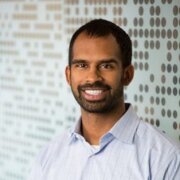
Raj Sundar, MD
Raj Sundar is a family physician and a community organizer, dedicated to creating systems that prioritize the dignity of each individual.
His leadership approach is rooted in enabling and facilitating others to achieve a shared purpose, and his goal is to contribute to the creation of institutions and communities that are diverse, equitable, and inclusive by honoring people's histories and uplifting their hopes.
He strives to empower others to create meaningful change and cultivate conditions that enable individuals to flourish.
His leadership approach is rooted in enabling and facilitating others to achieve a shared purpose, and his goal is to contribute to the creation of institutions and communities that are diverse, equitable, and inclusive by honoring people's histories and uplifting their hopes.
He strives to empower others to create meaningful change and cultivate conditions that enable individuals to flourish.
